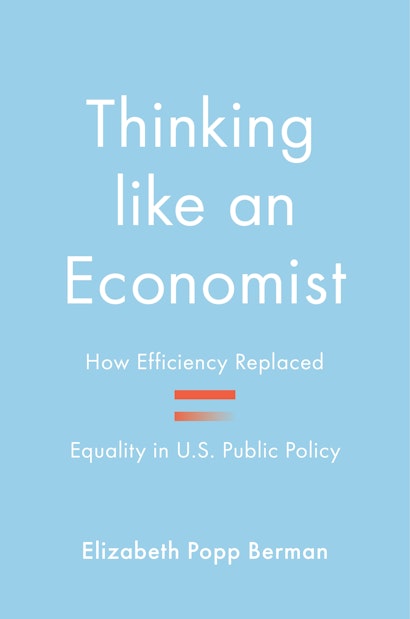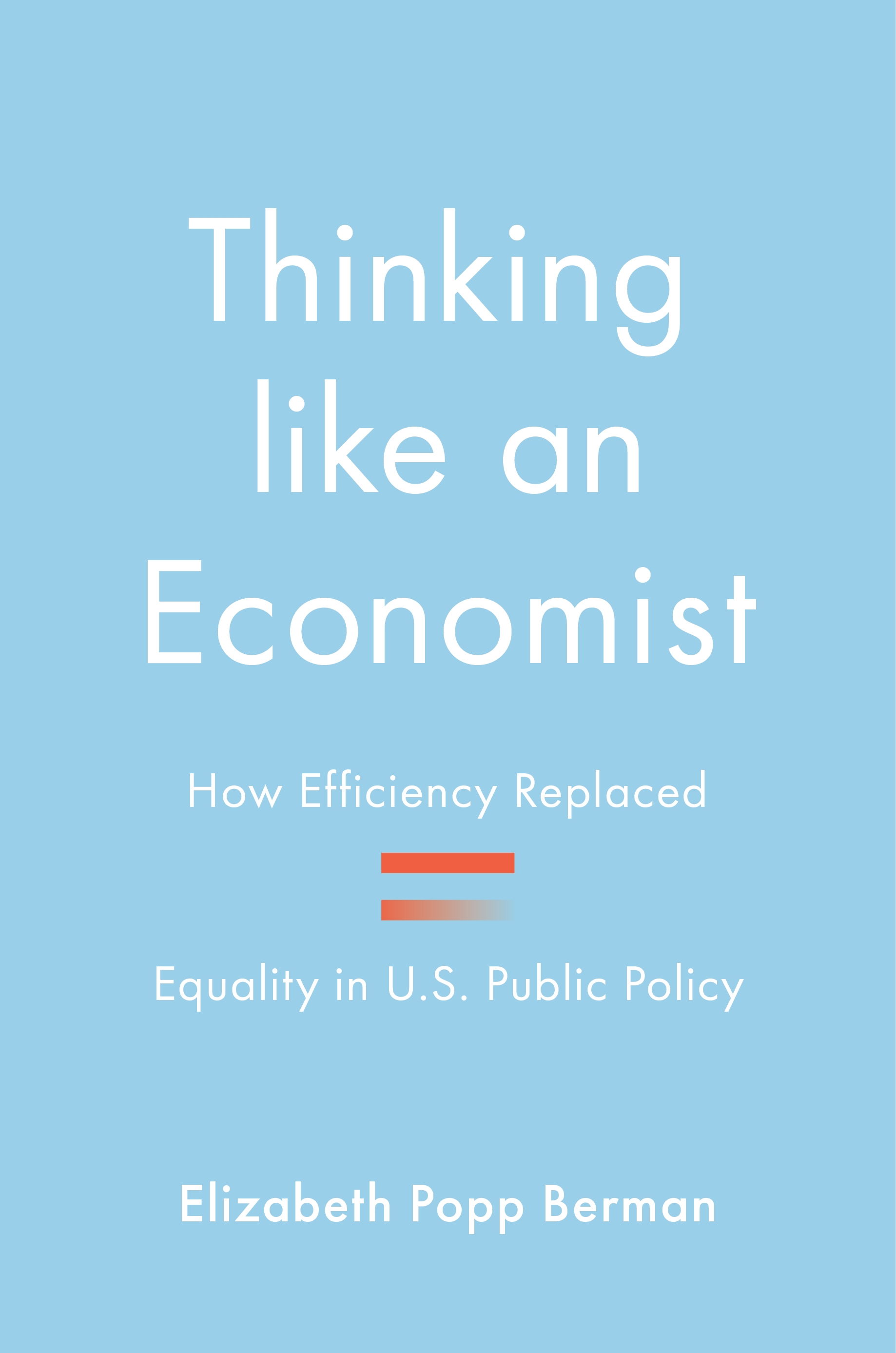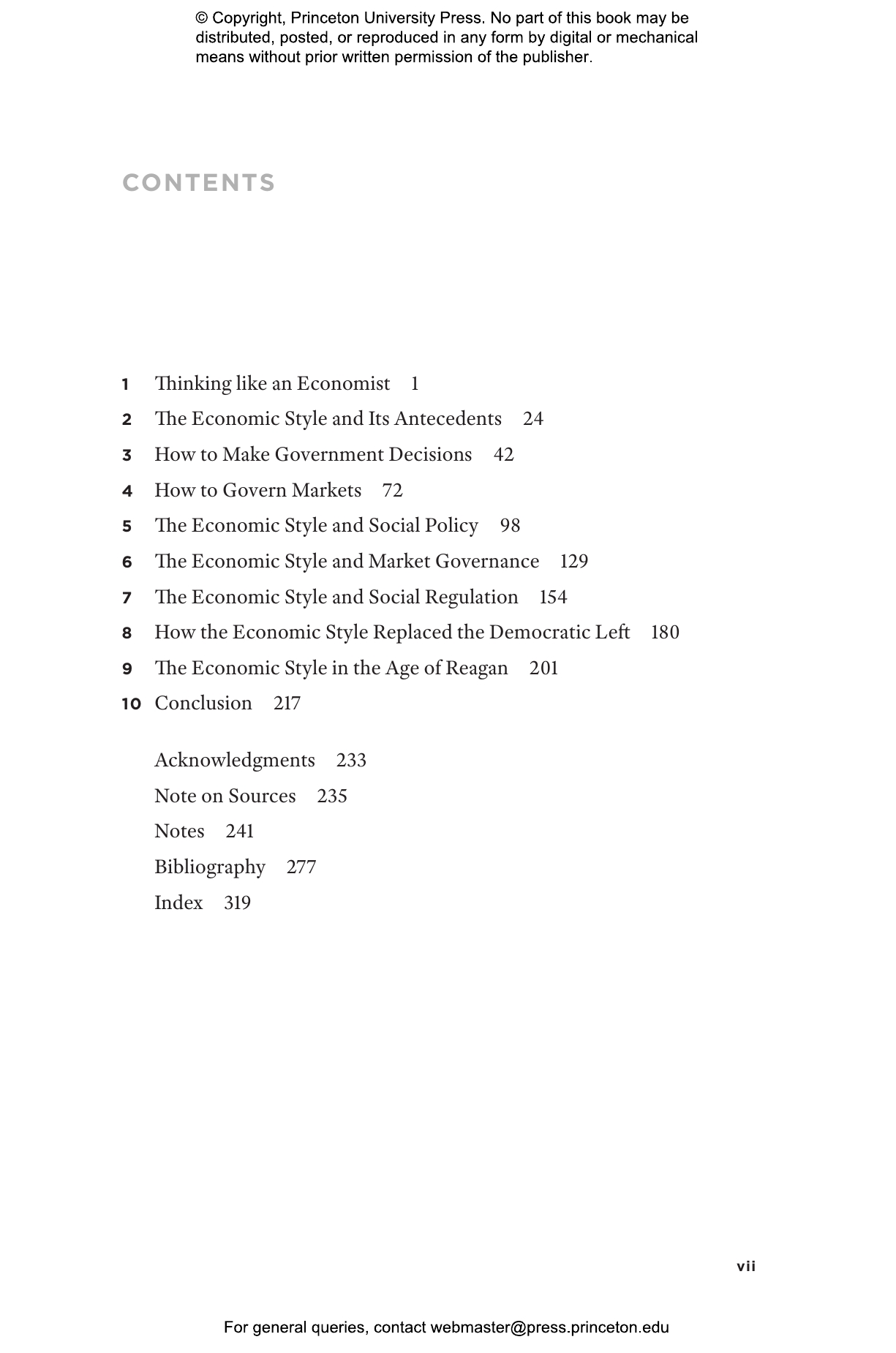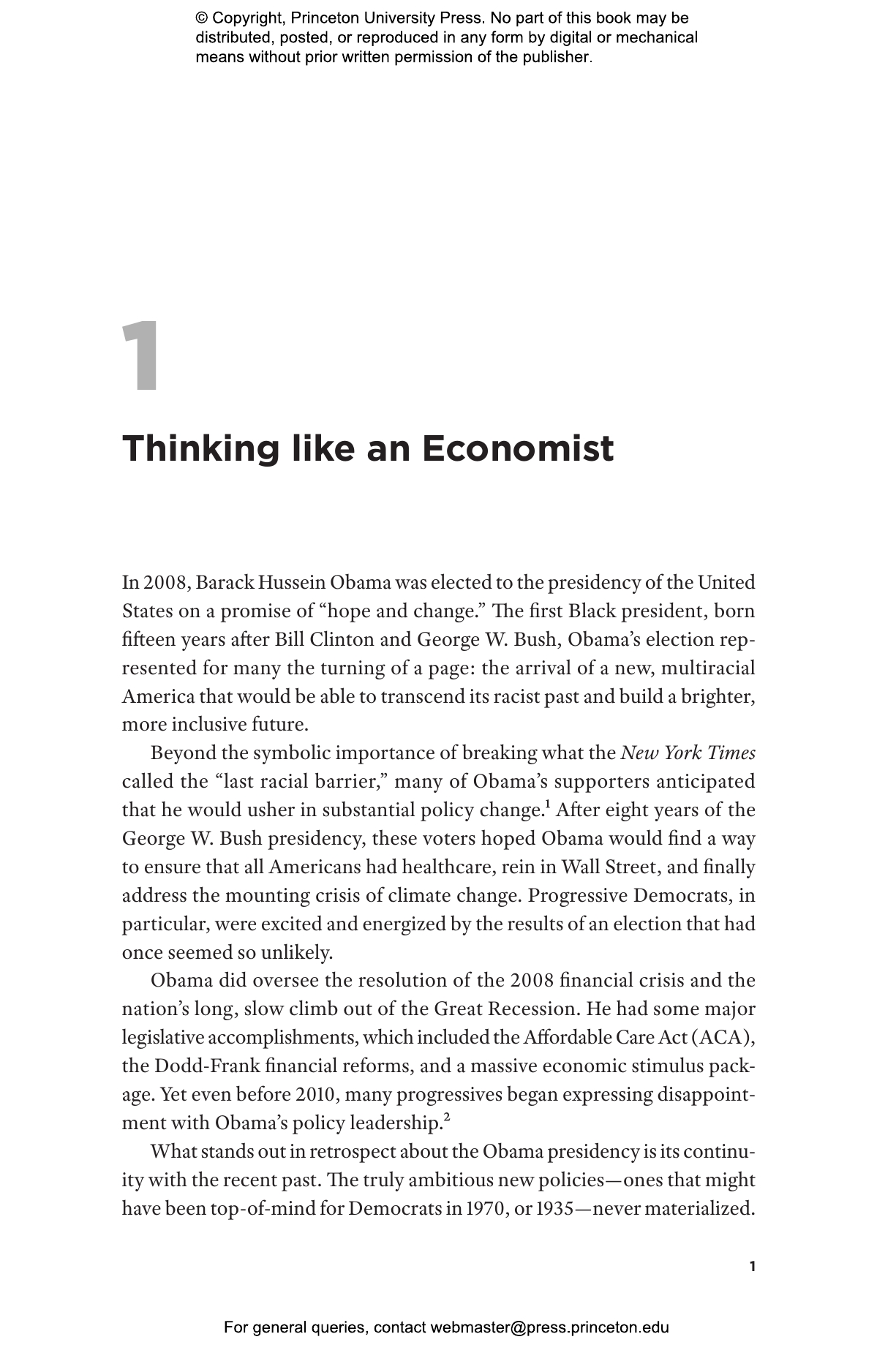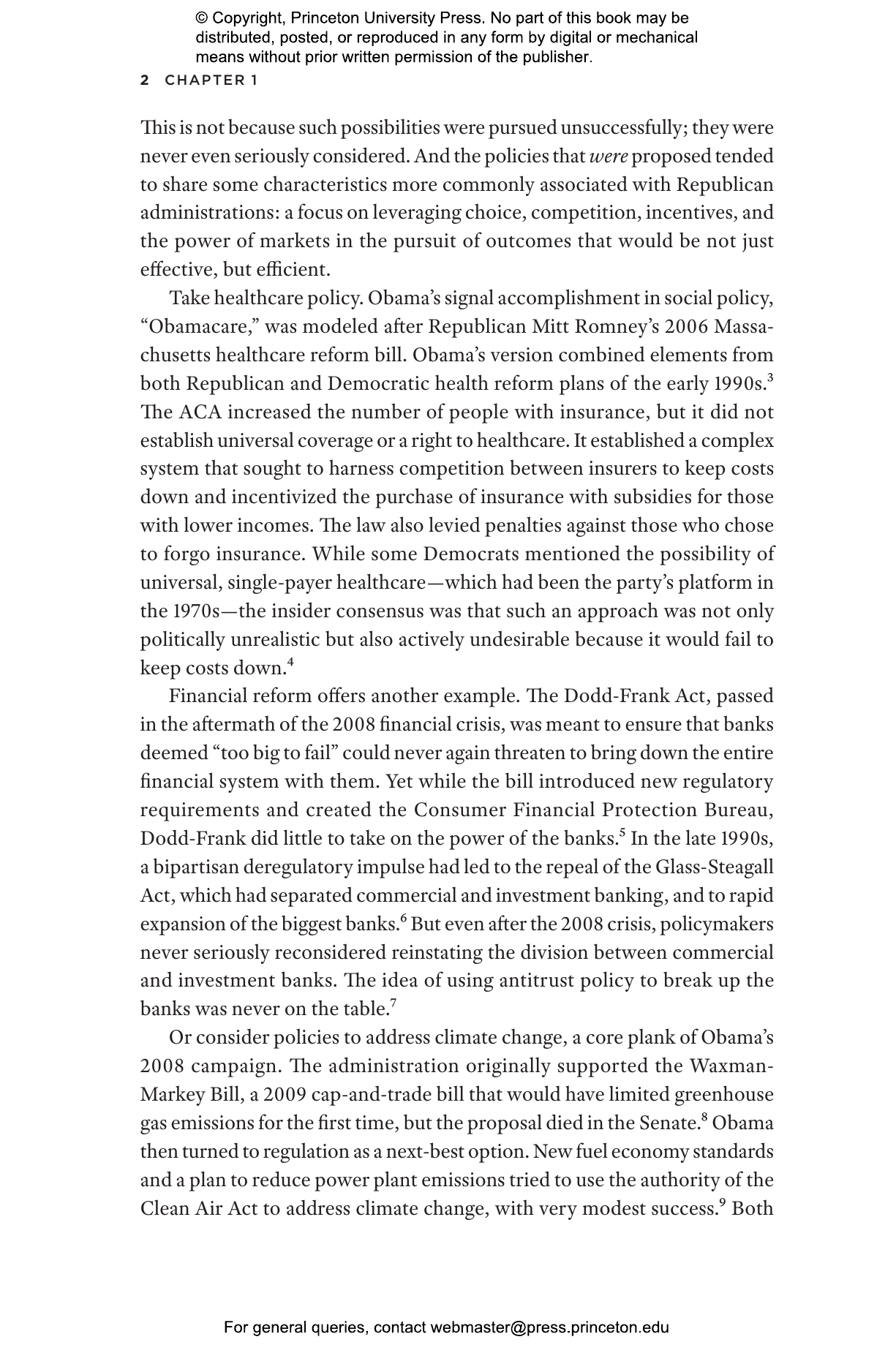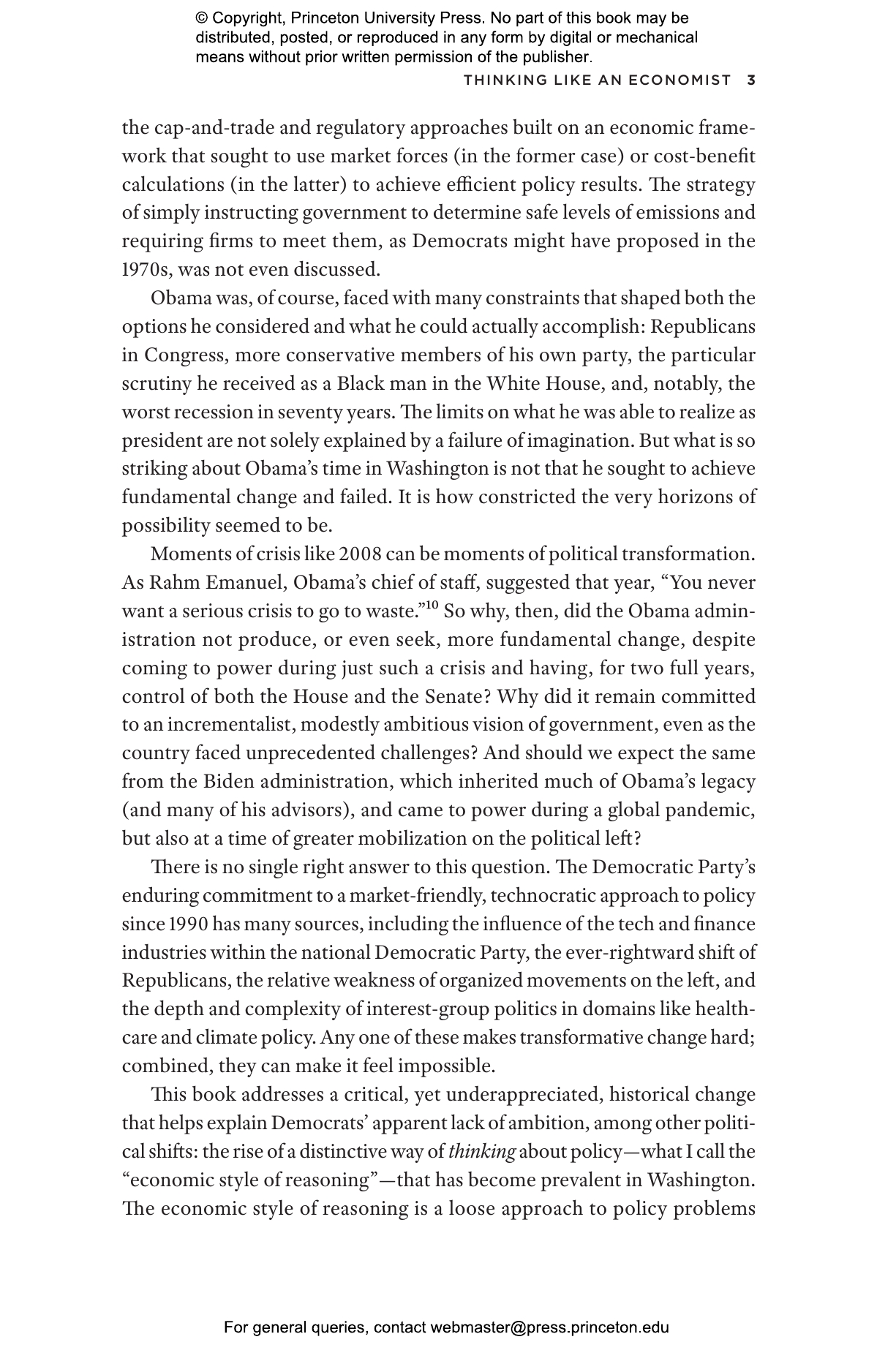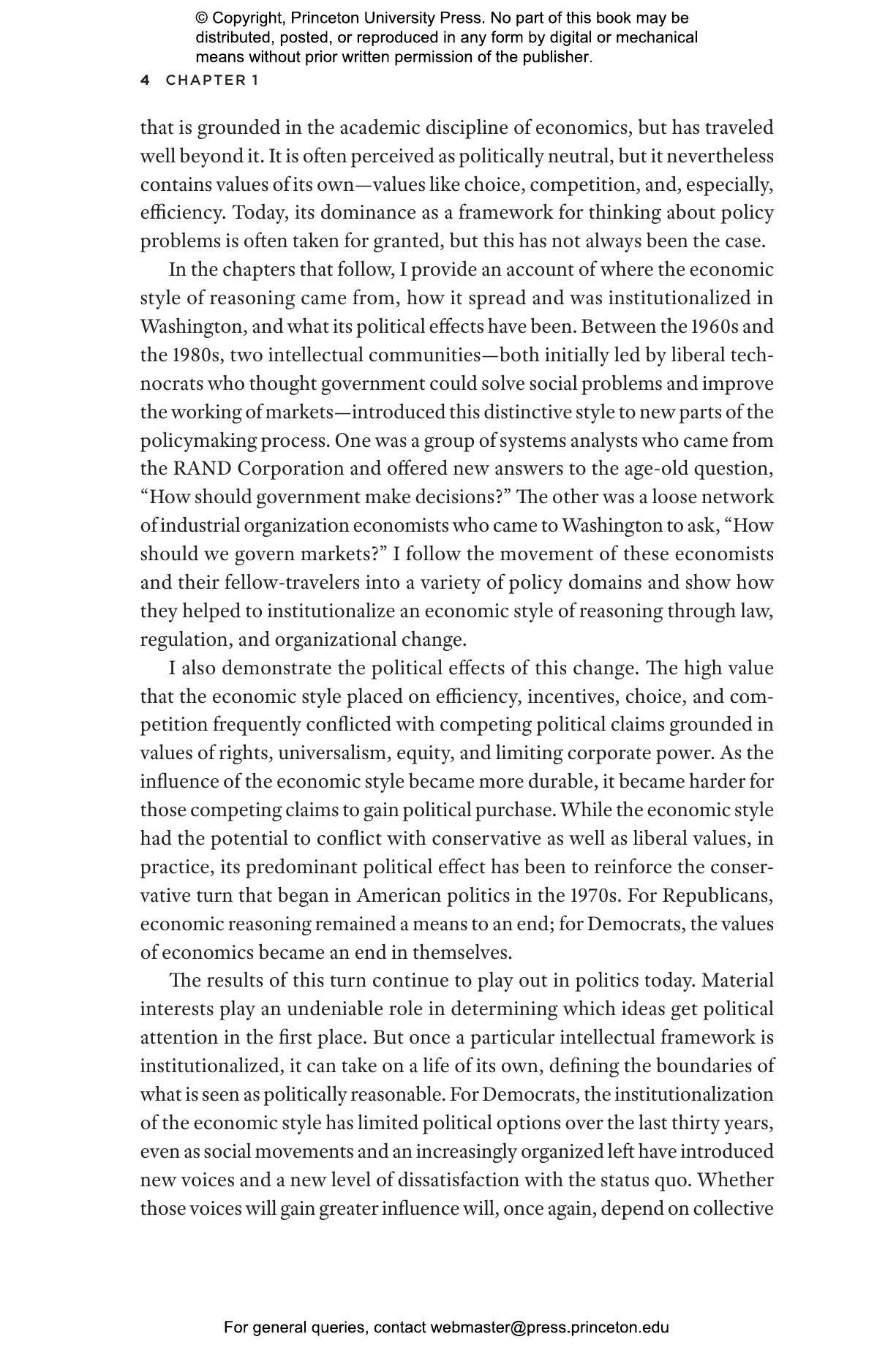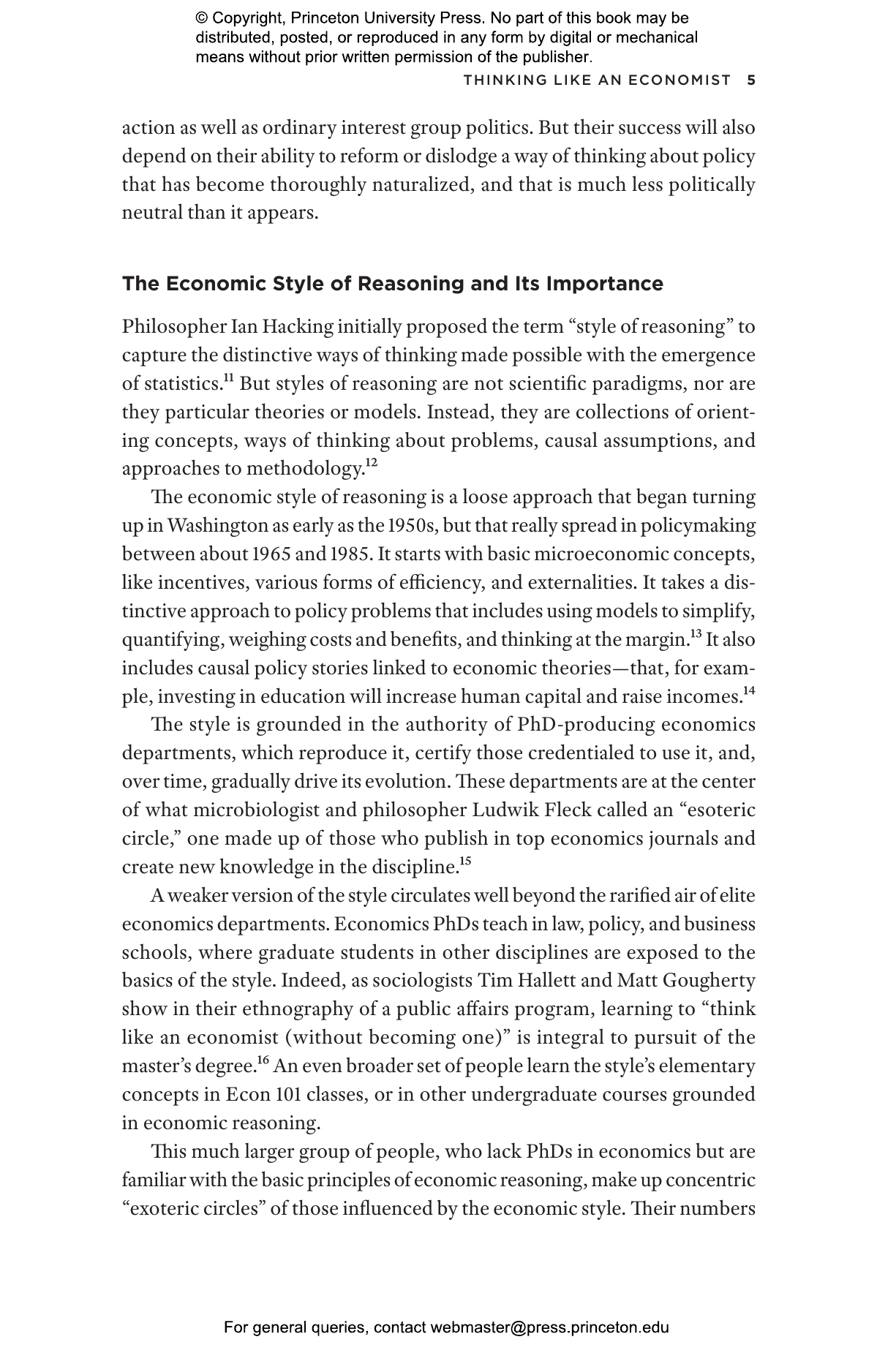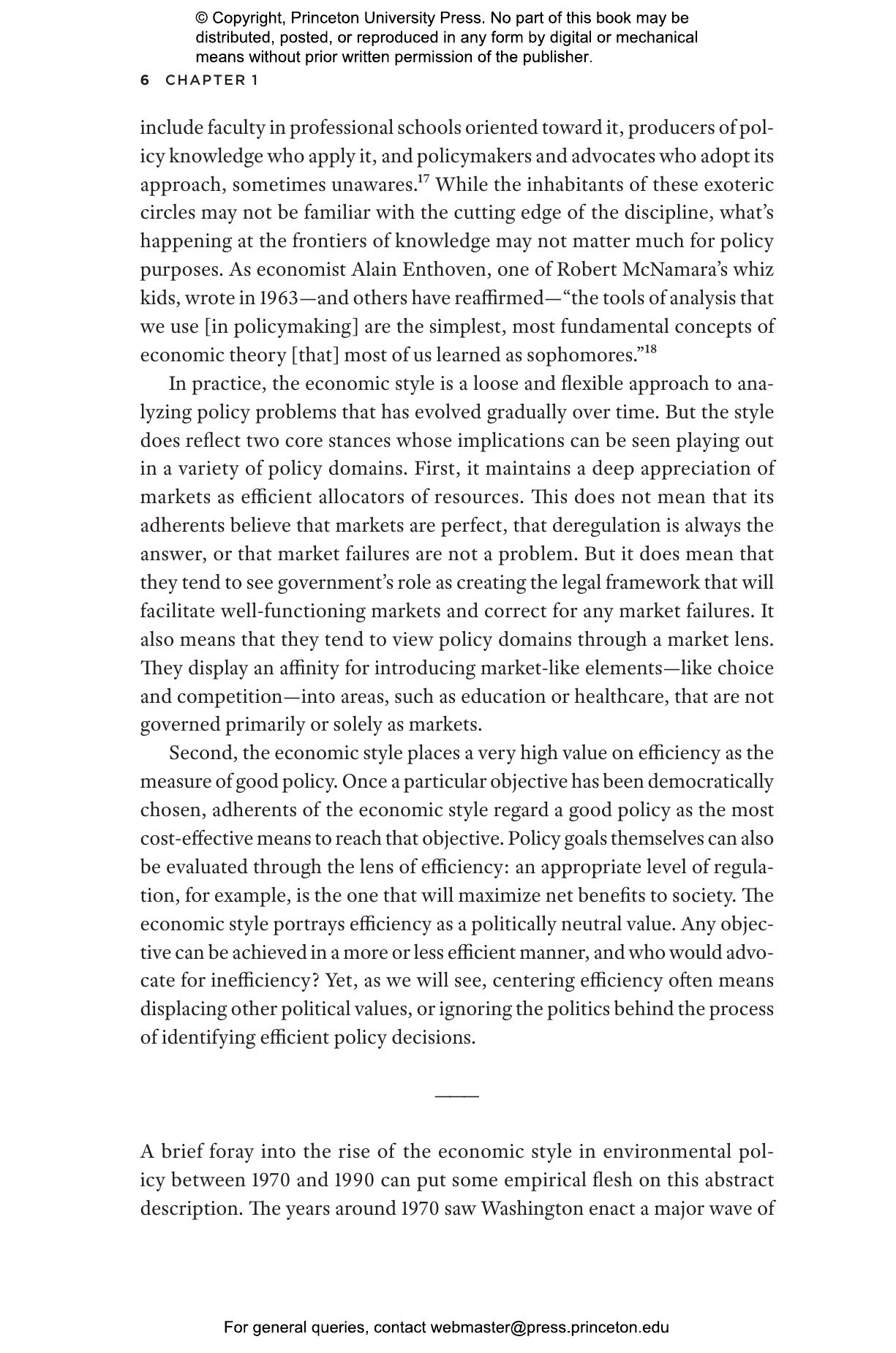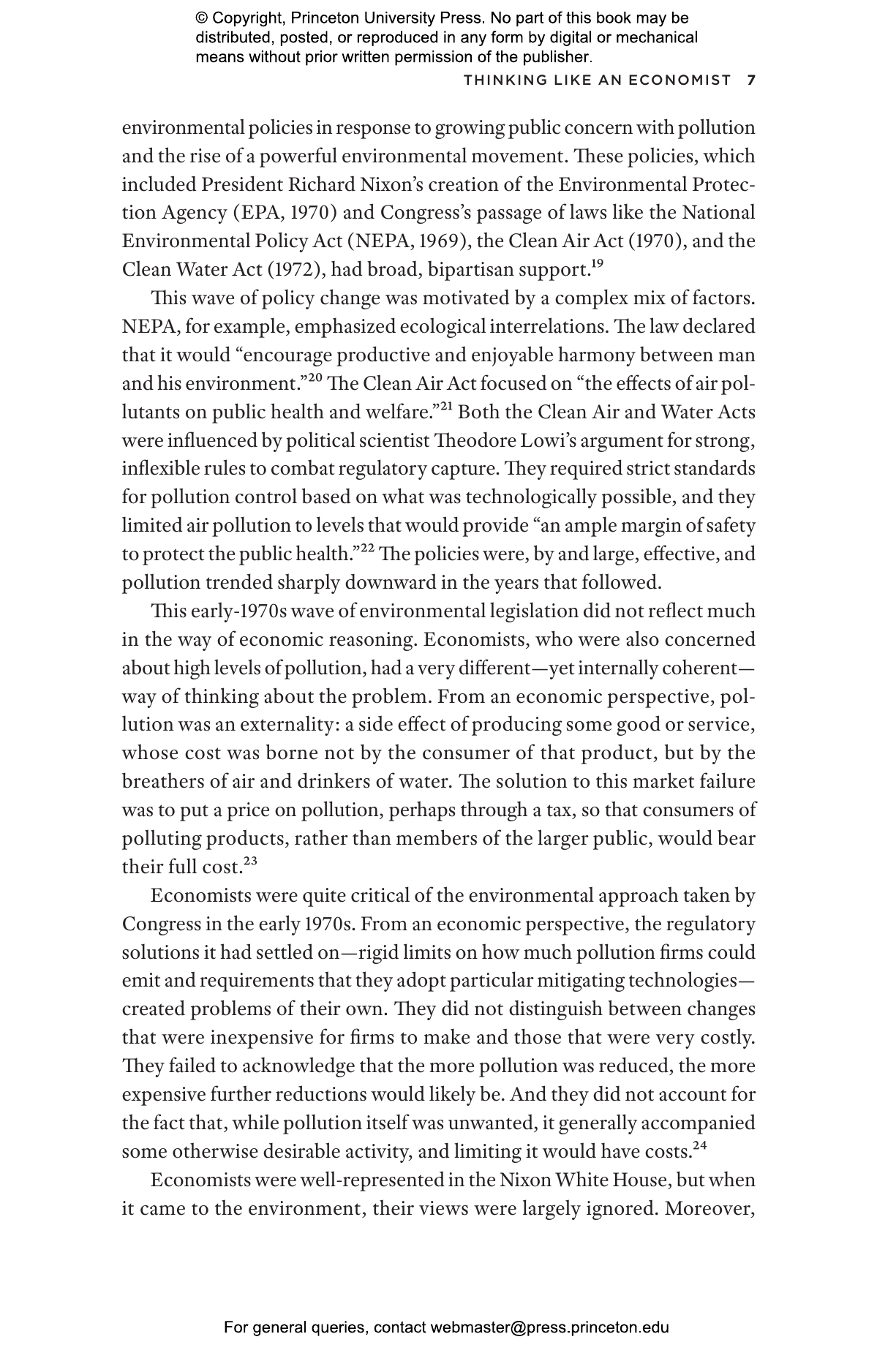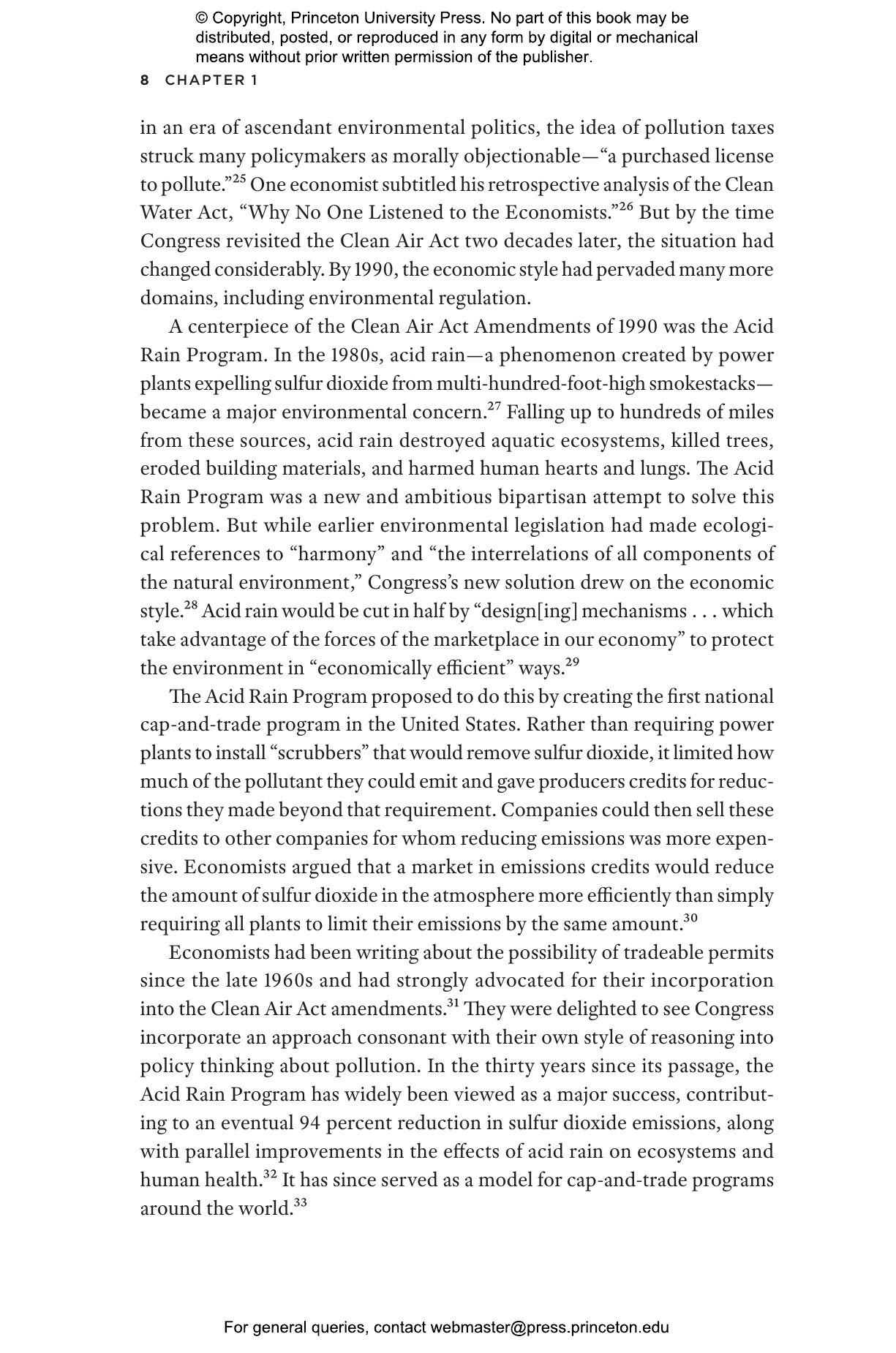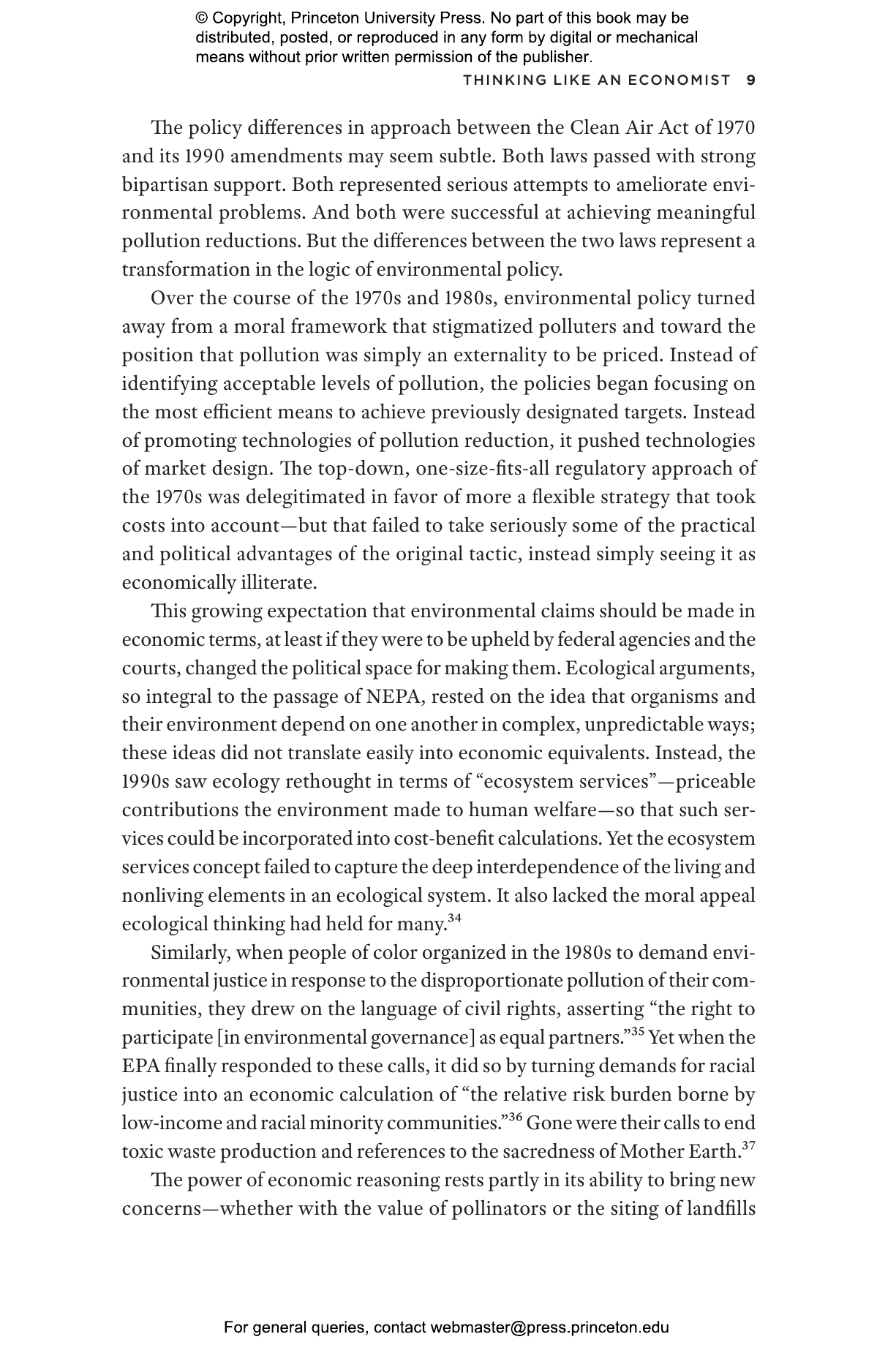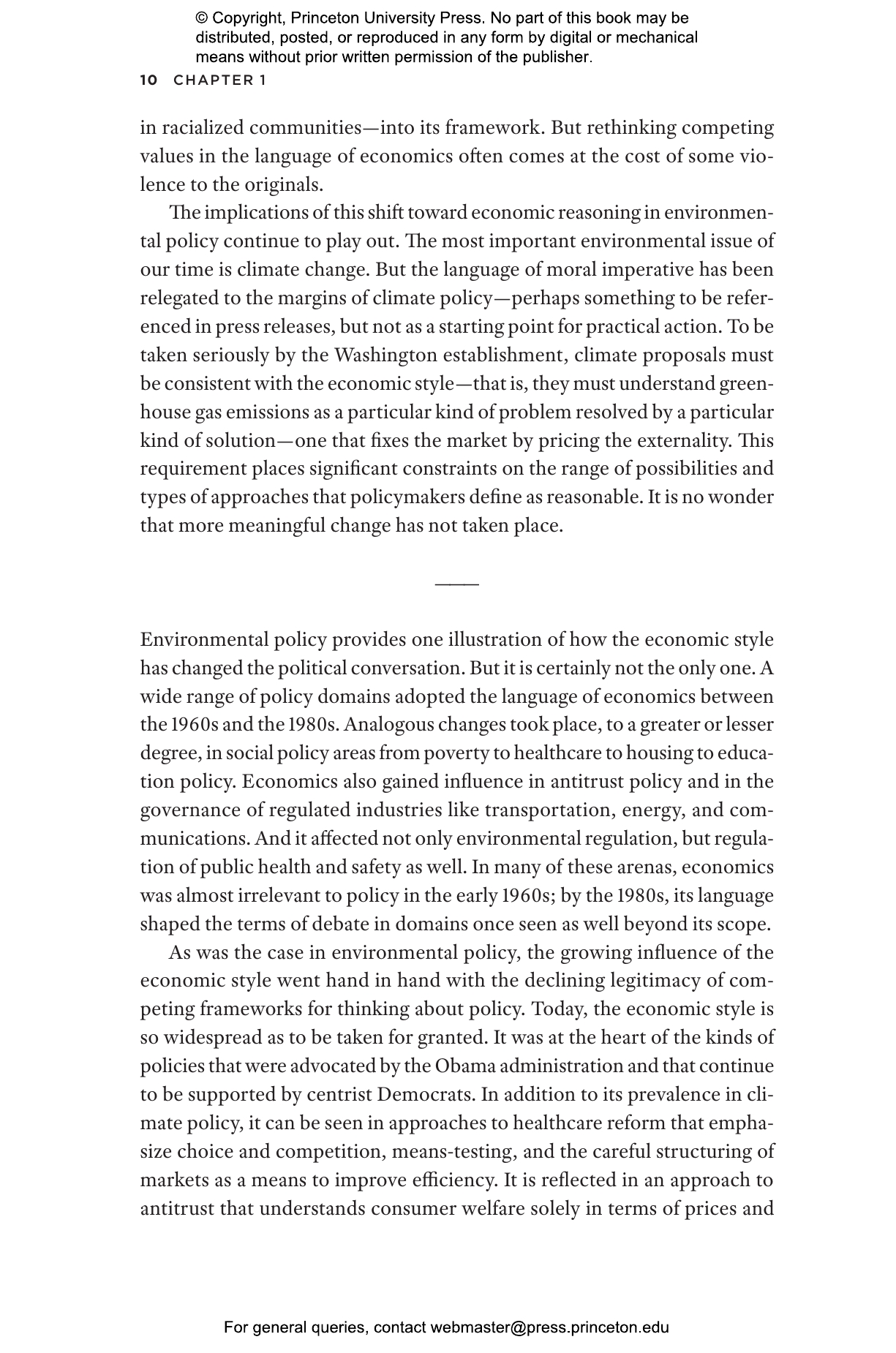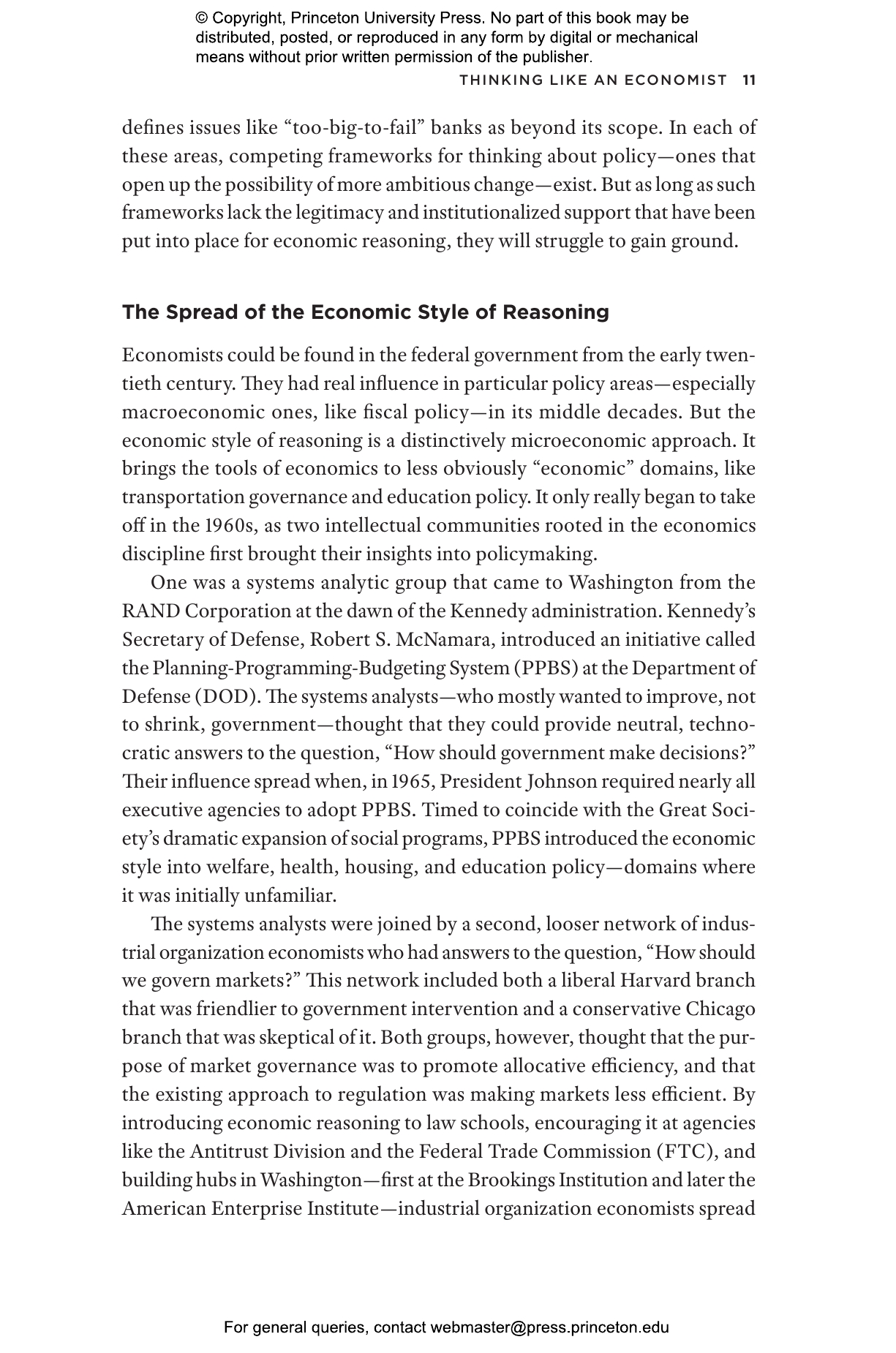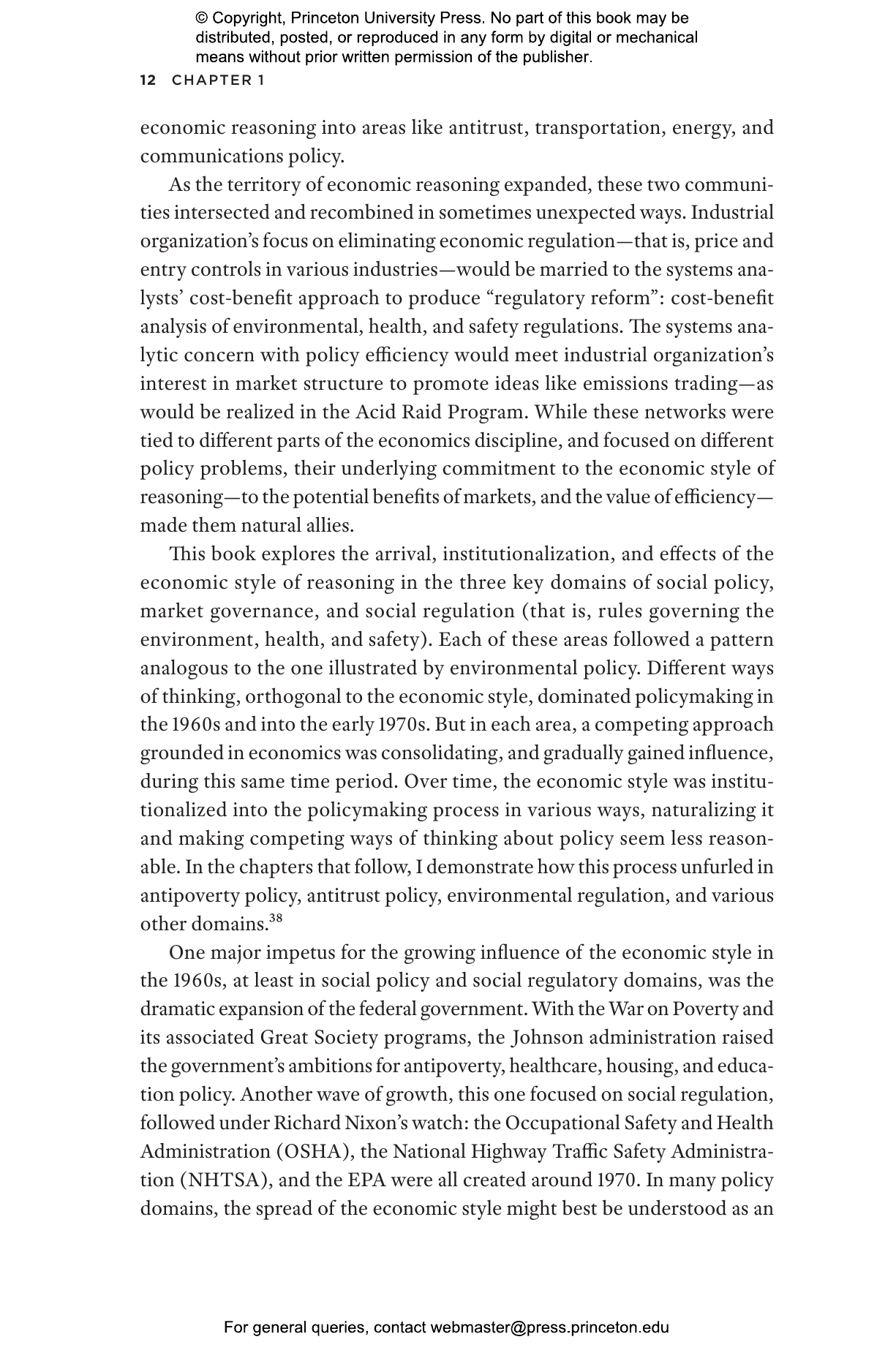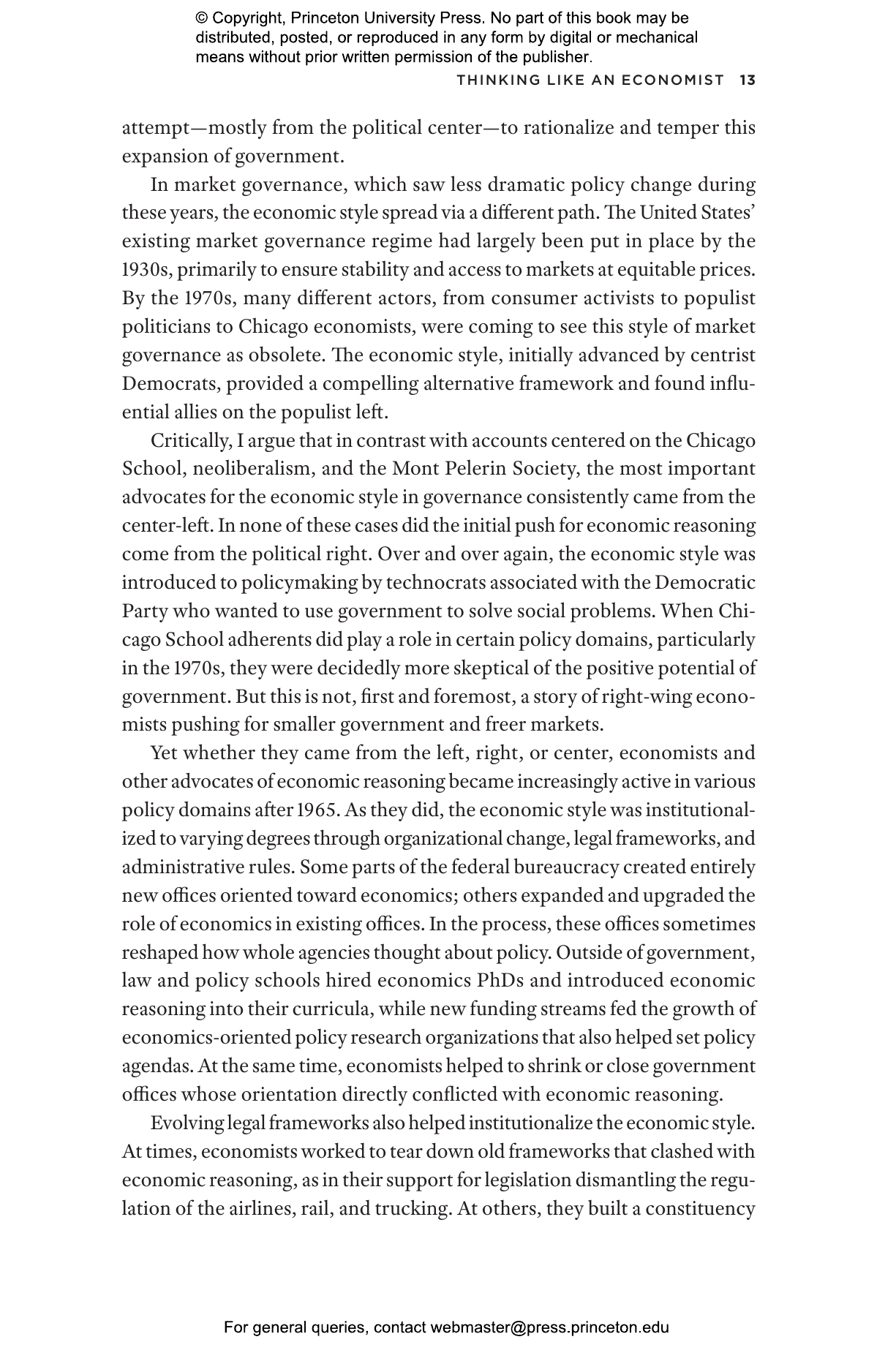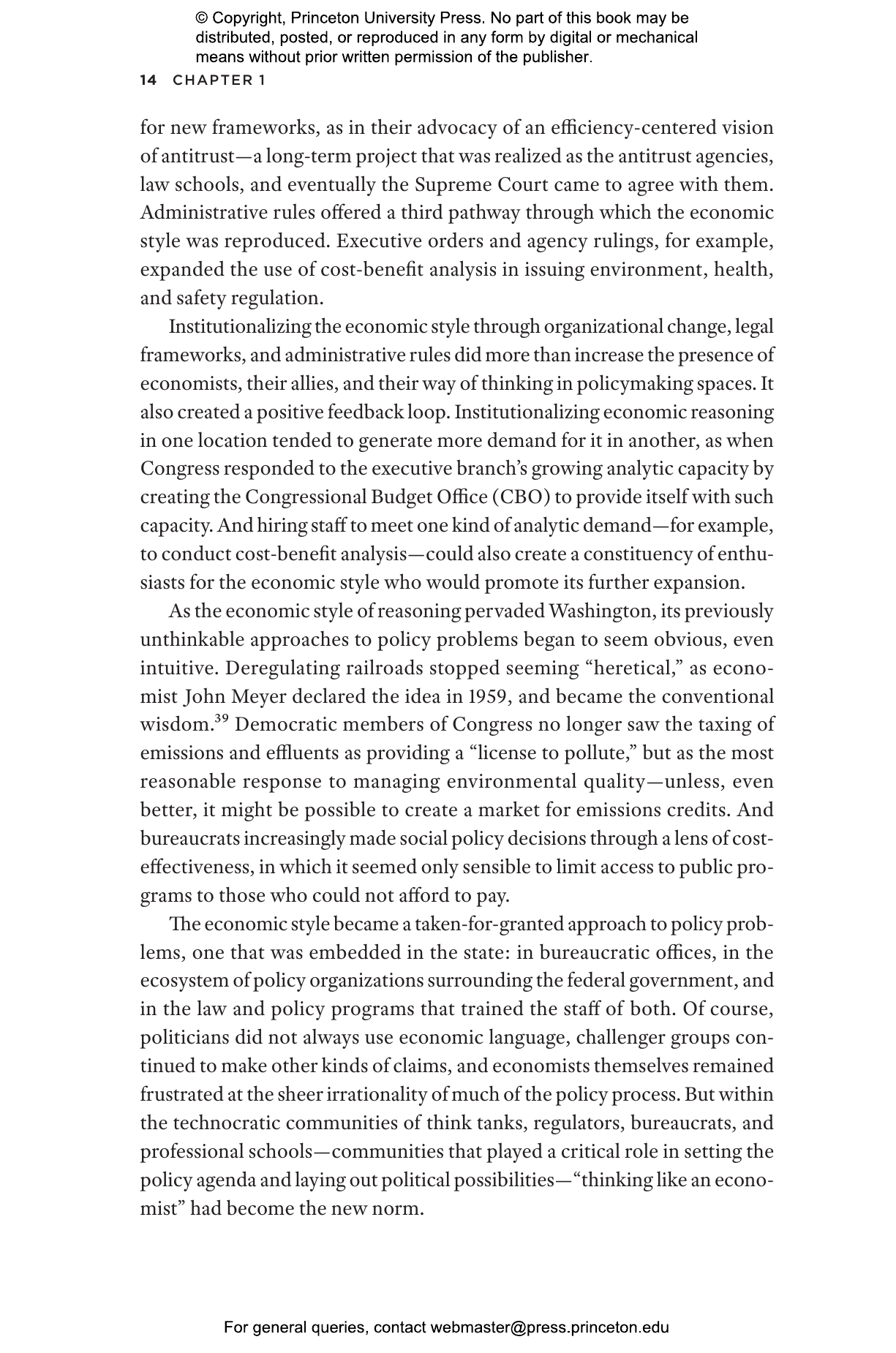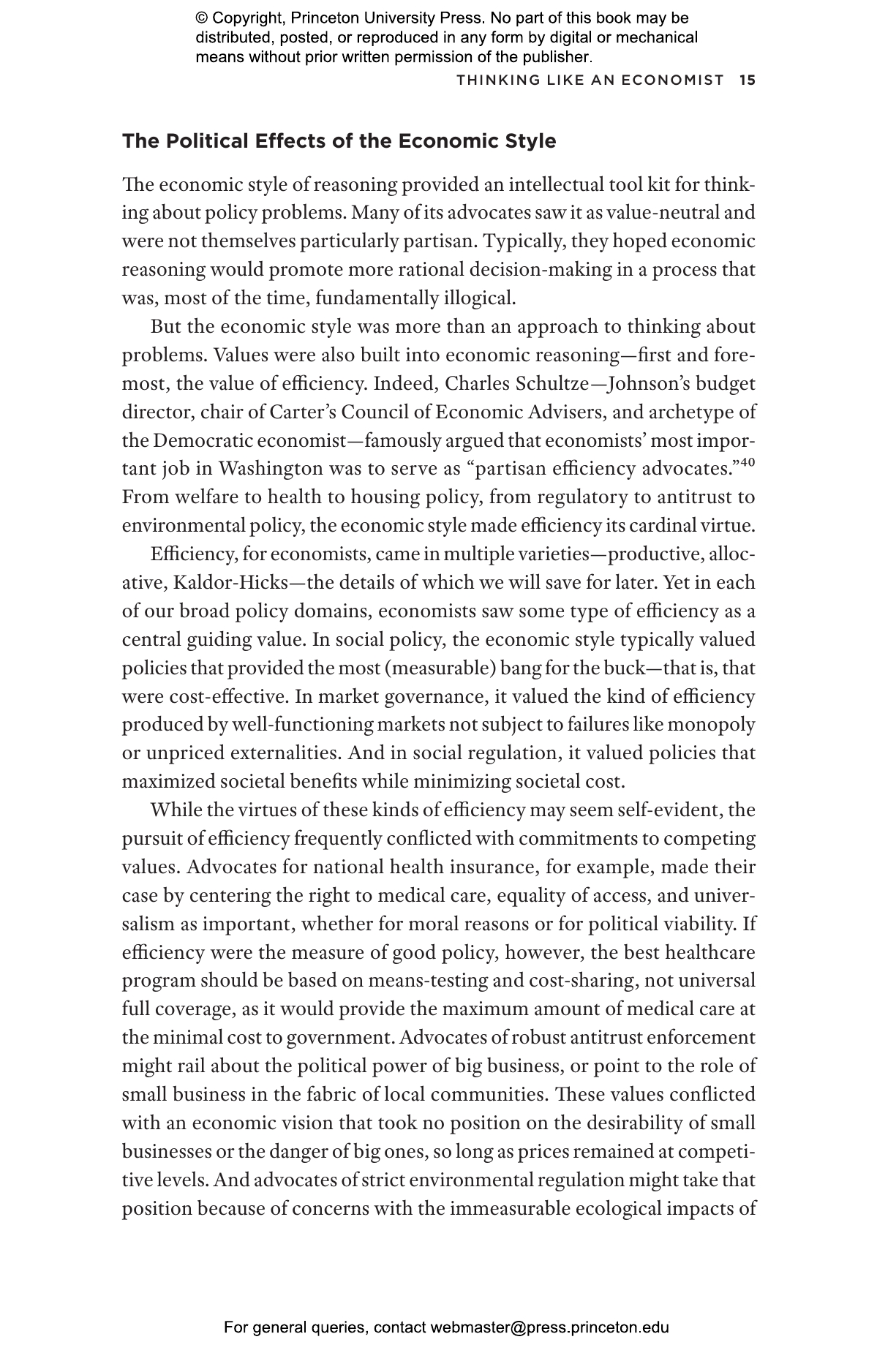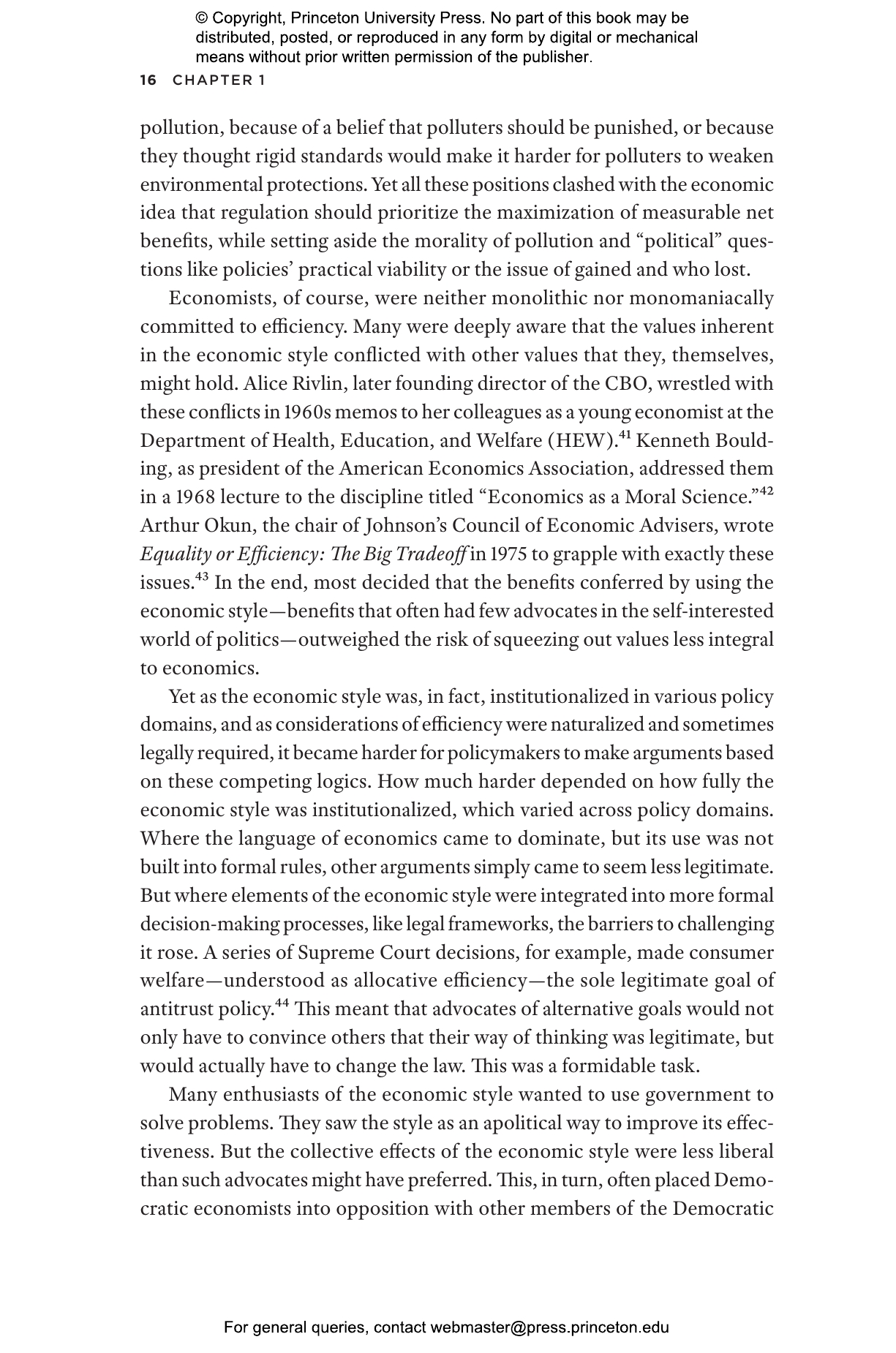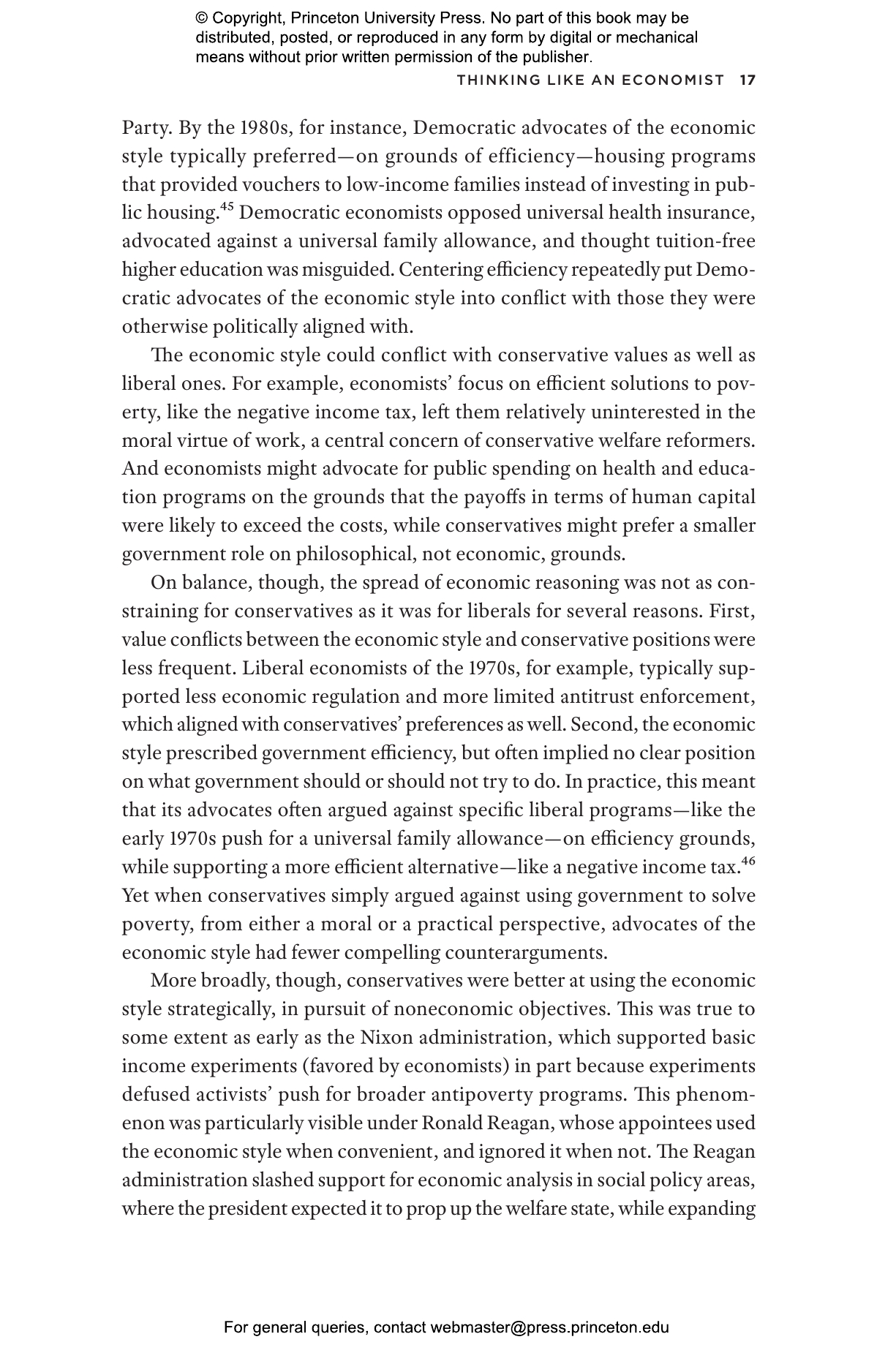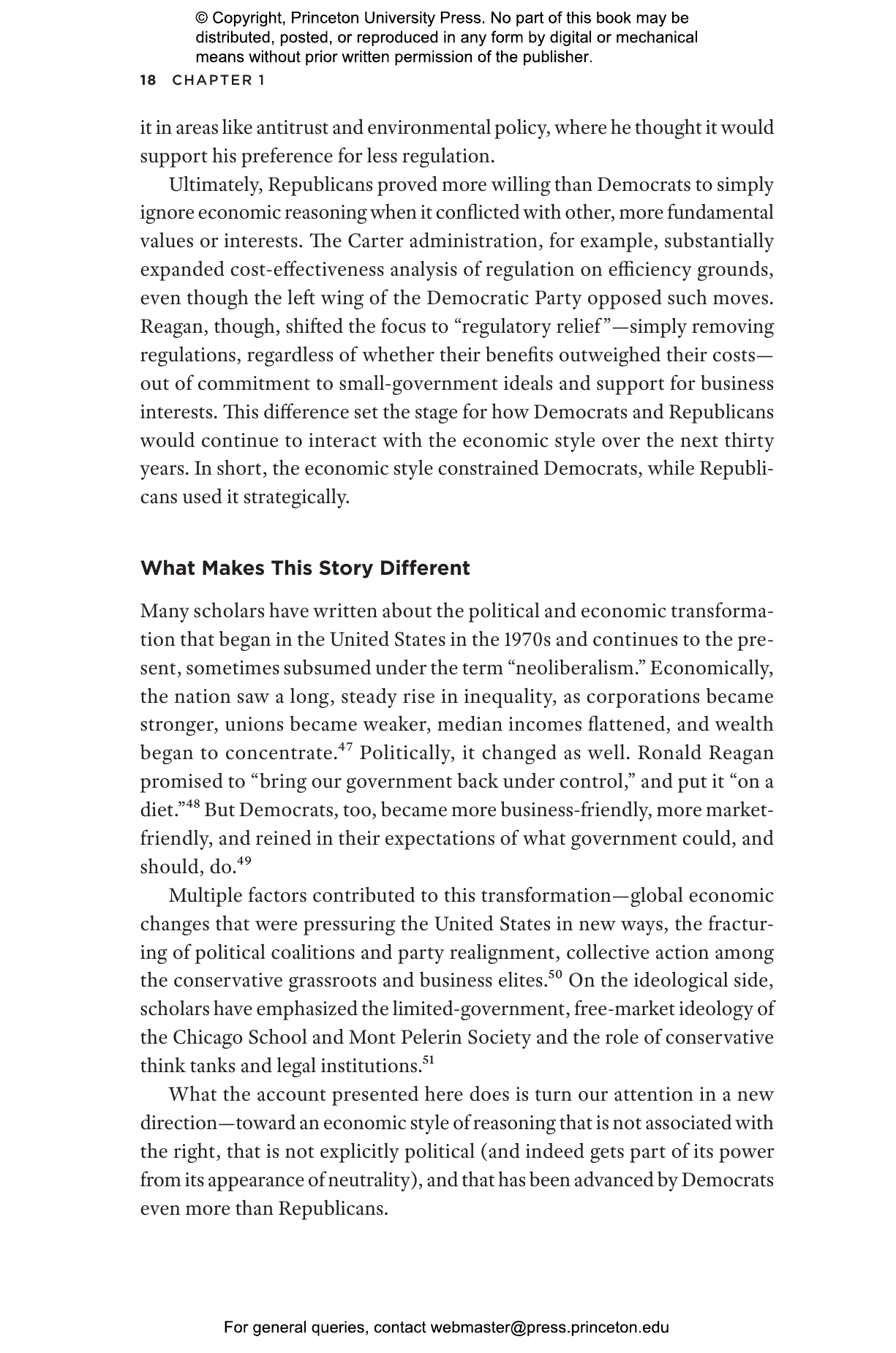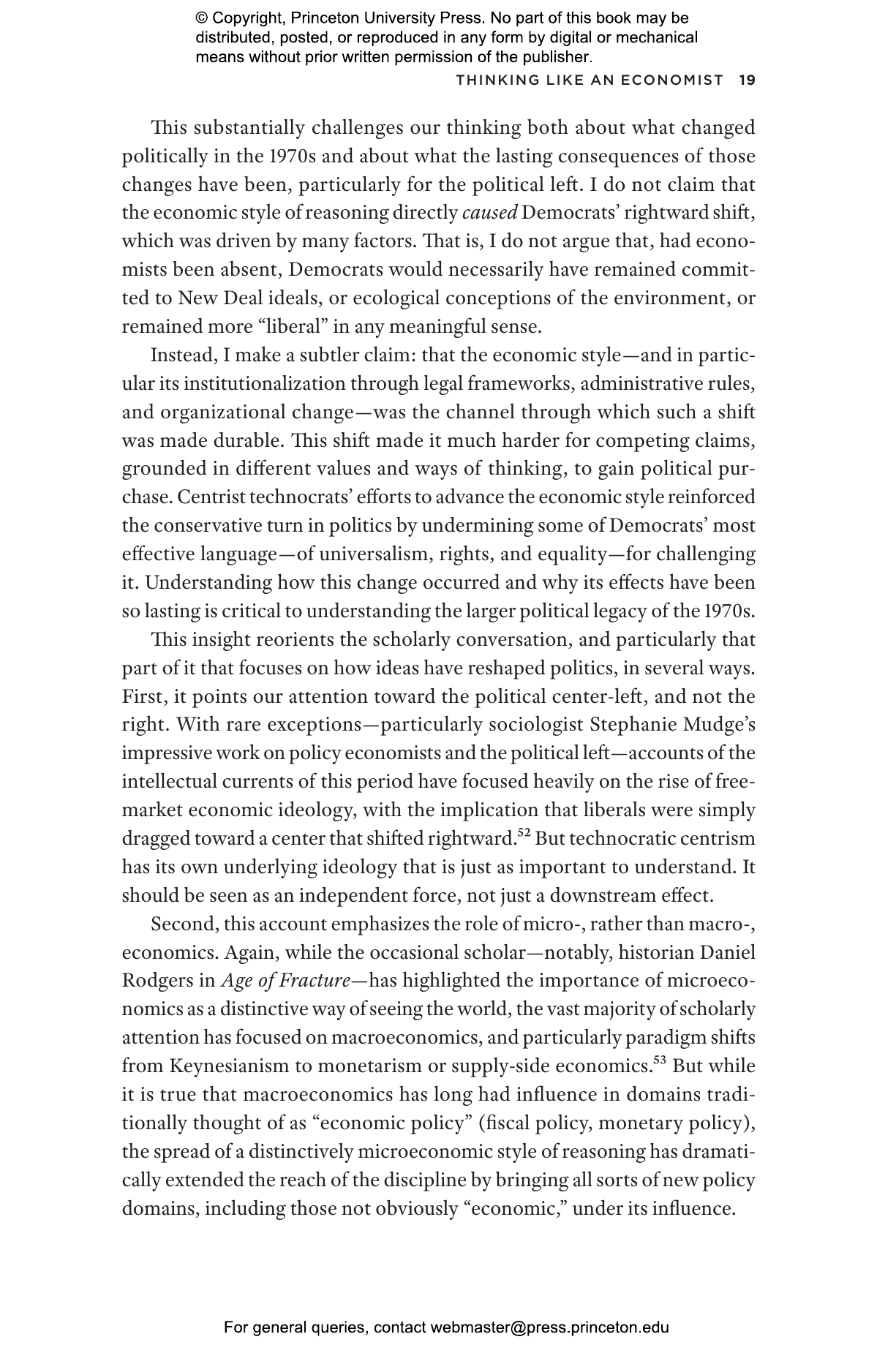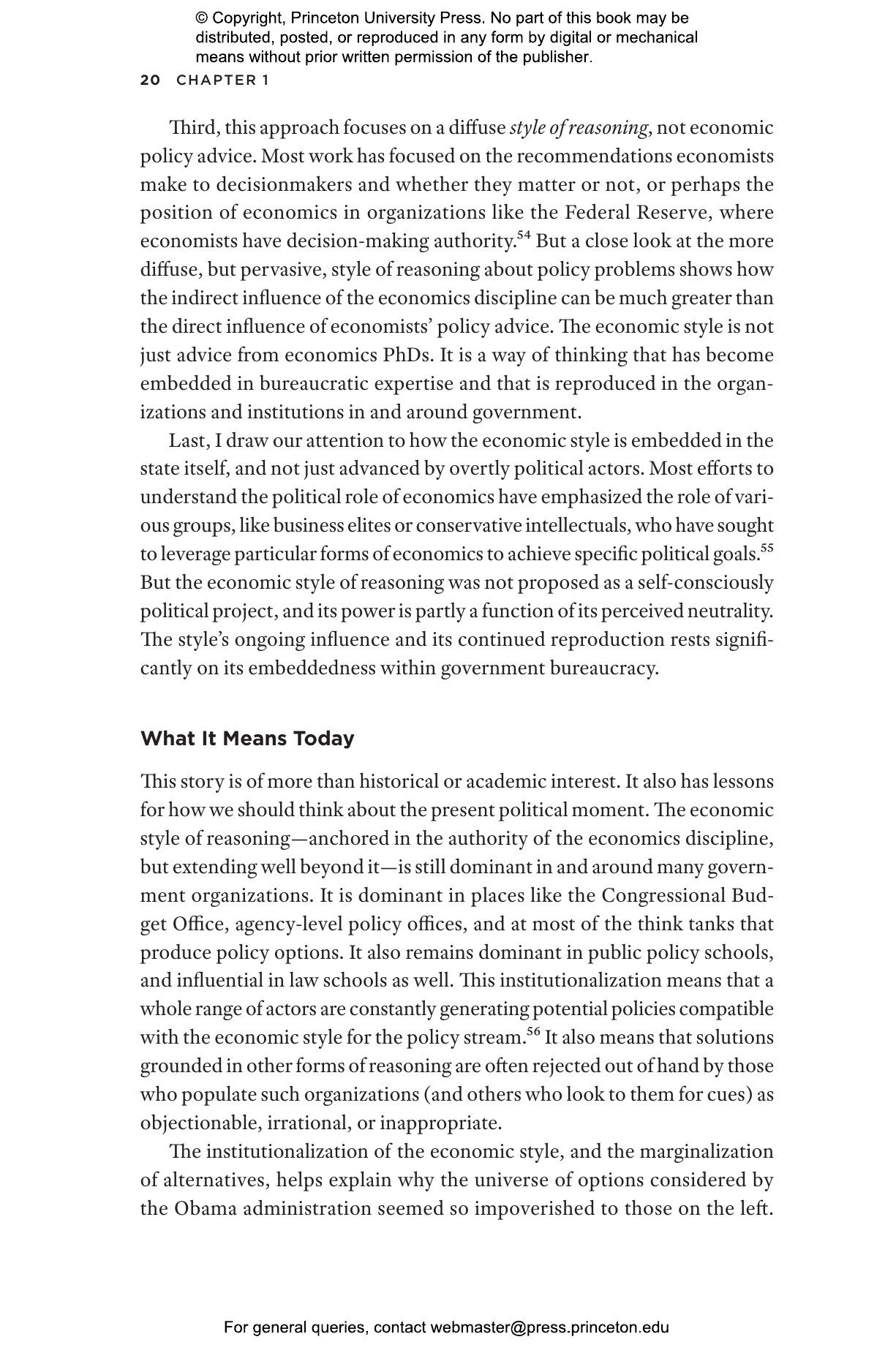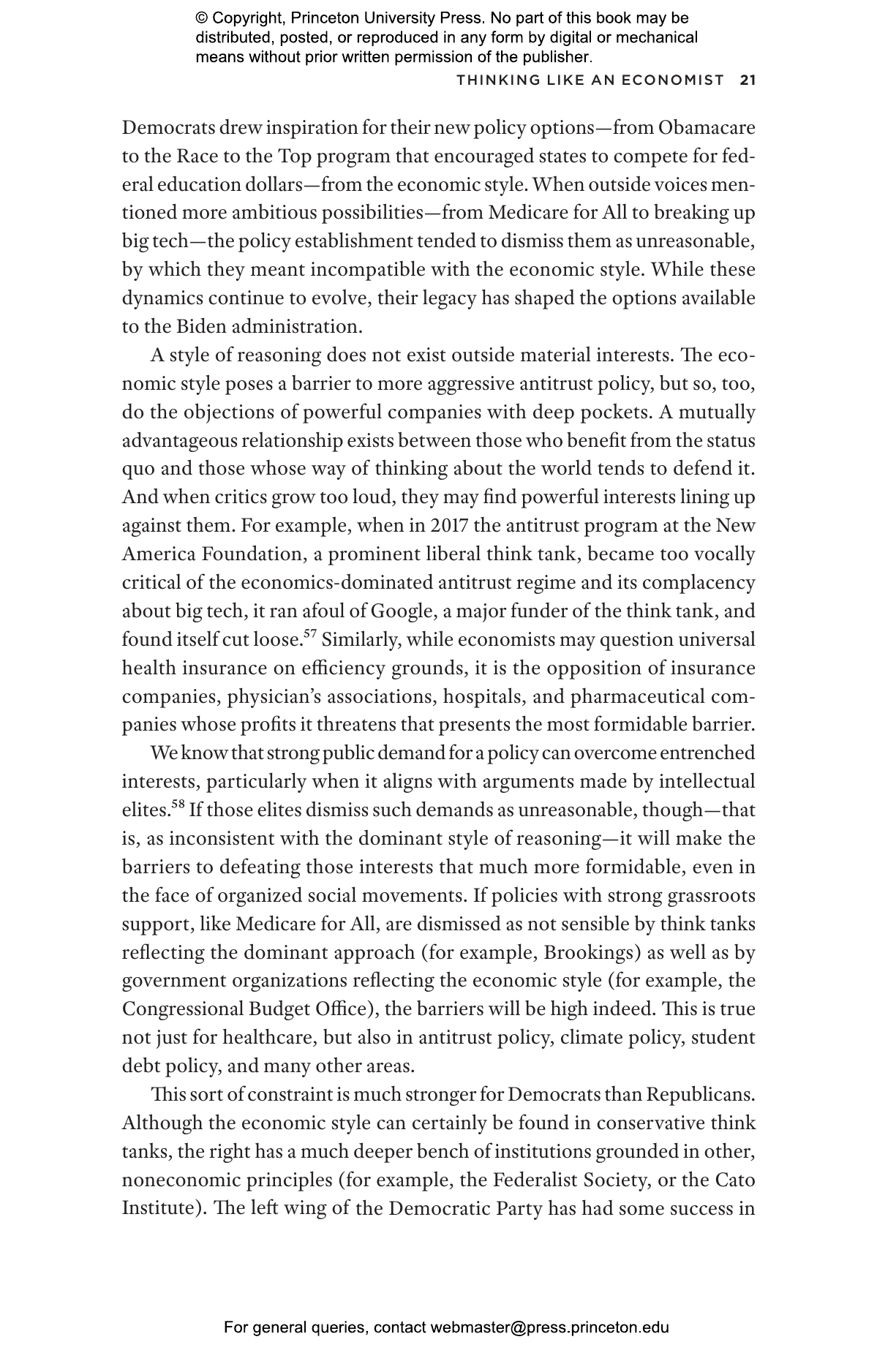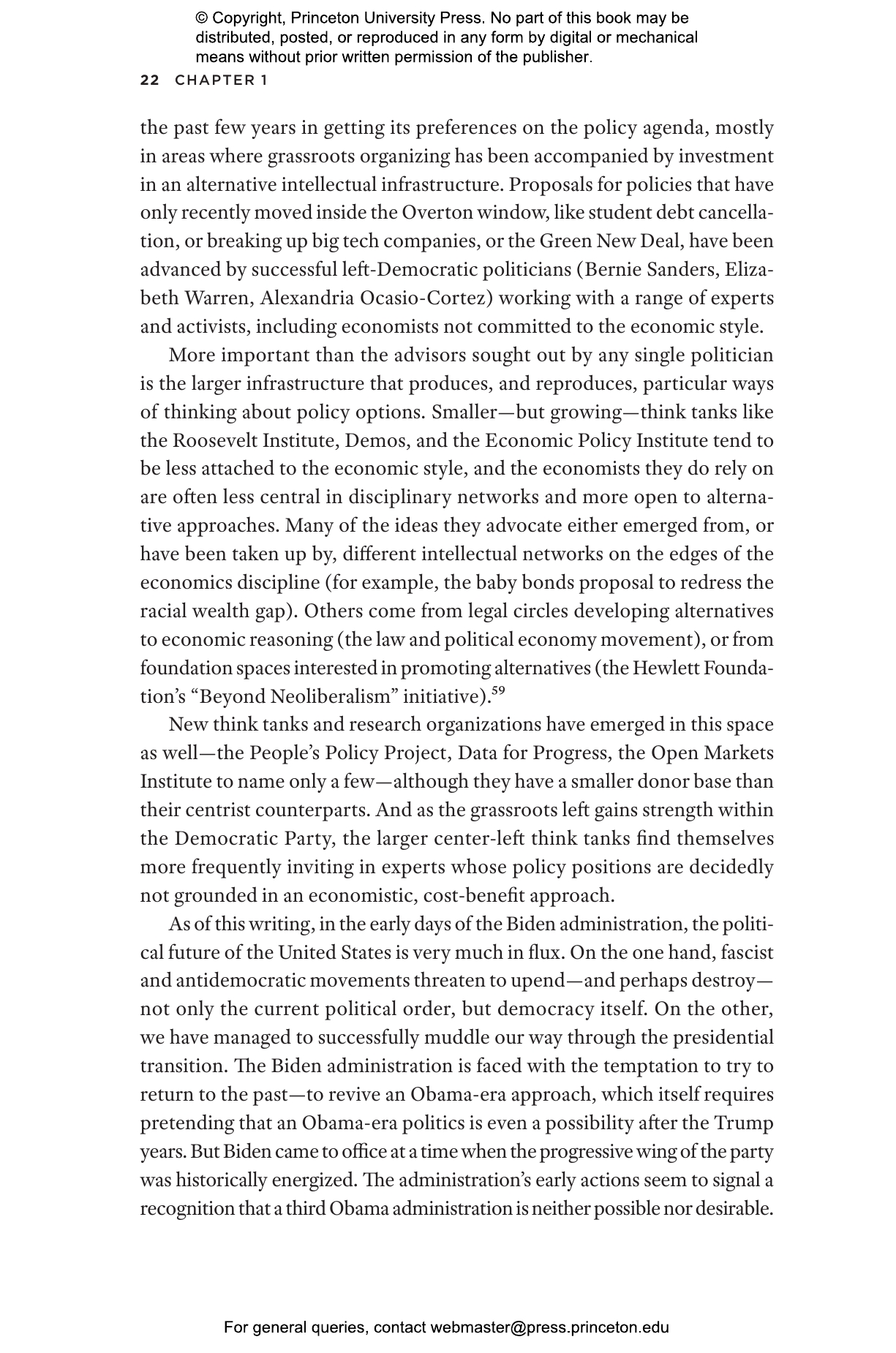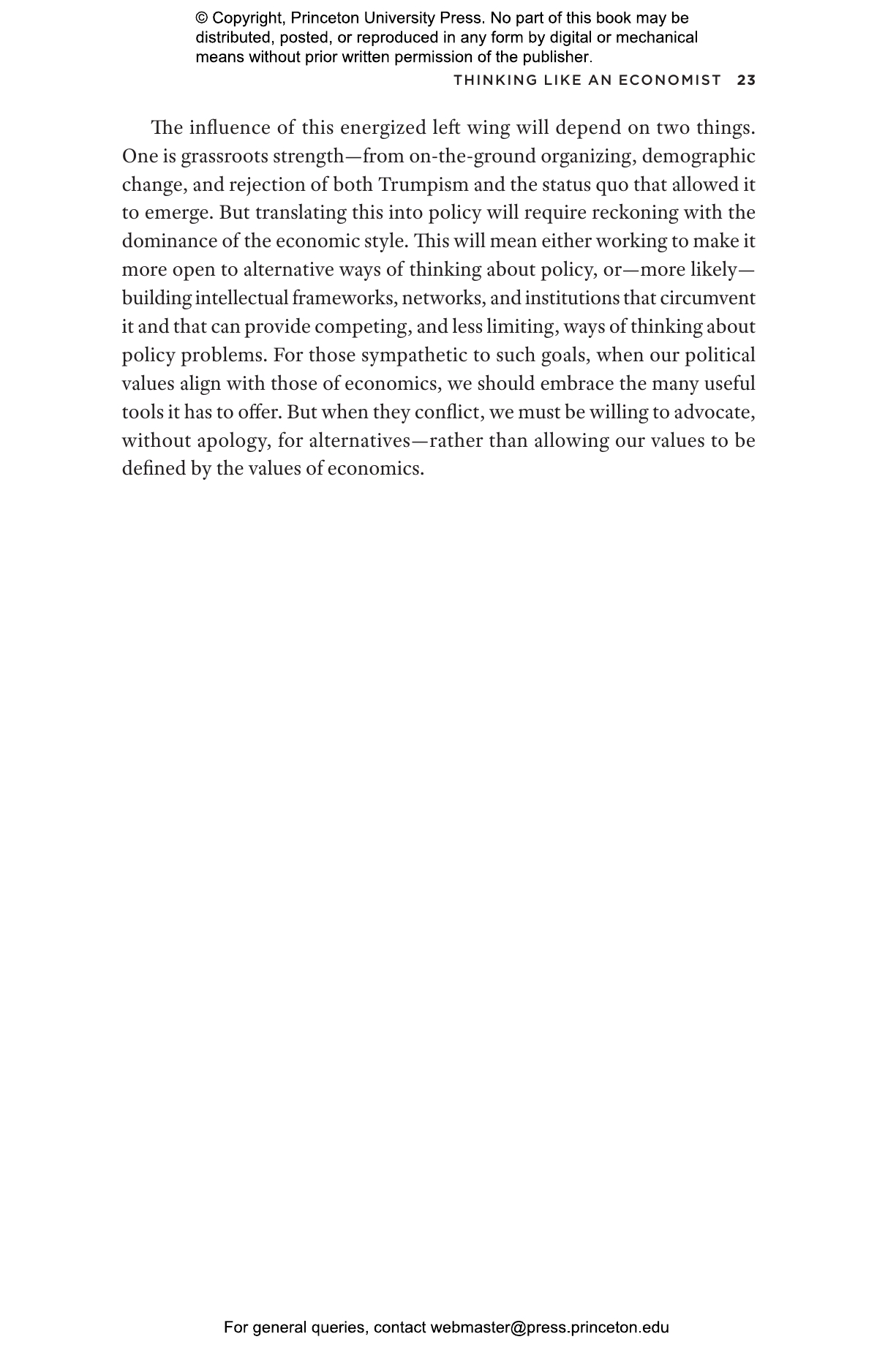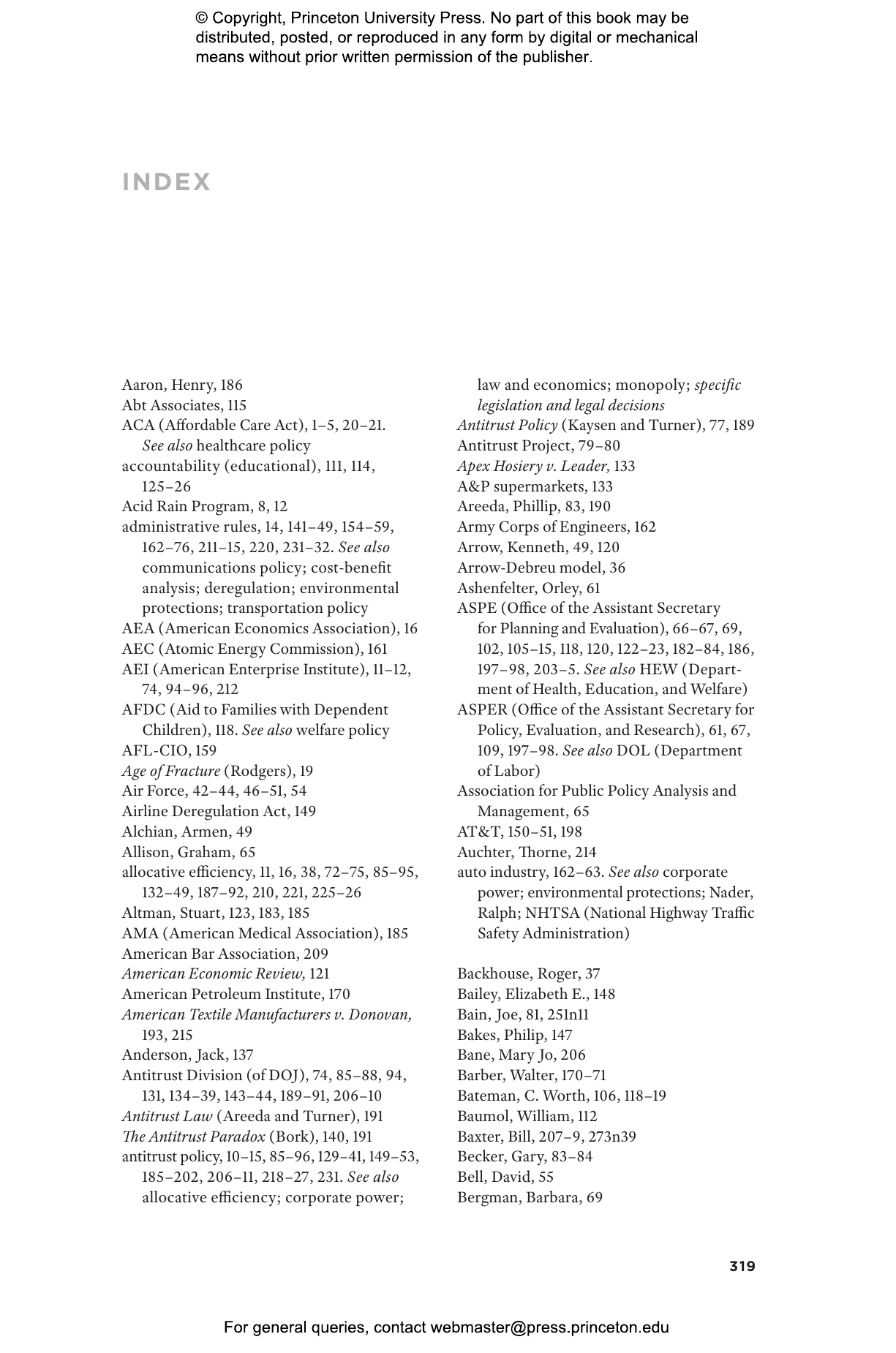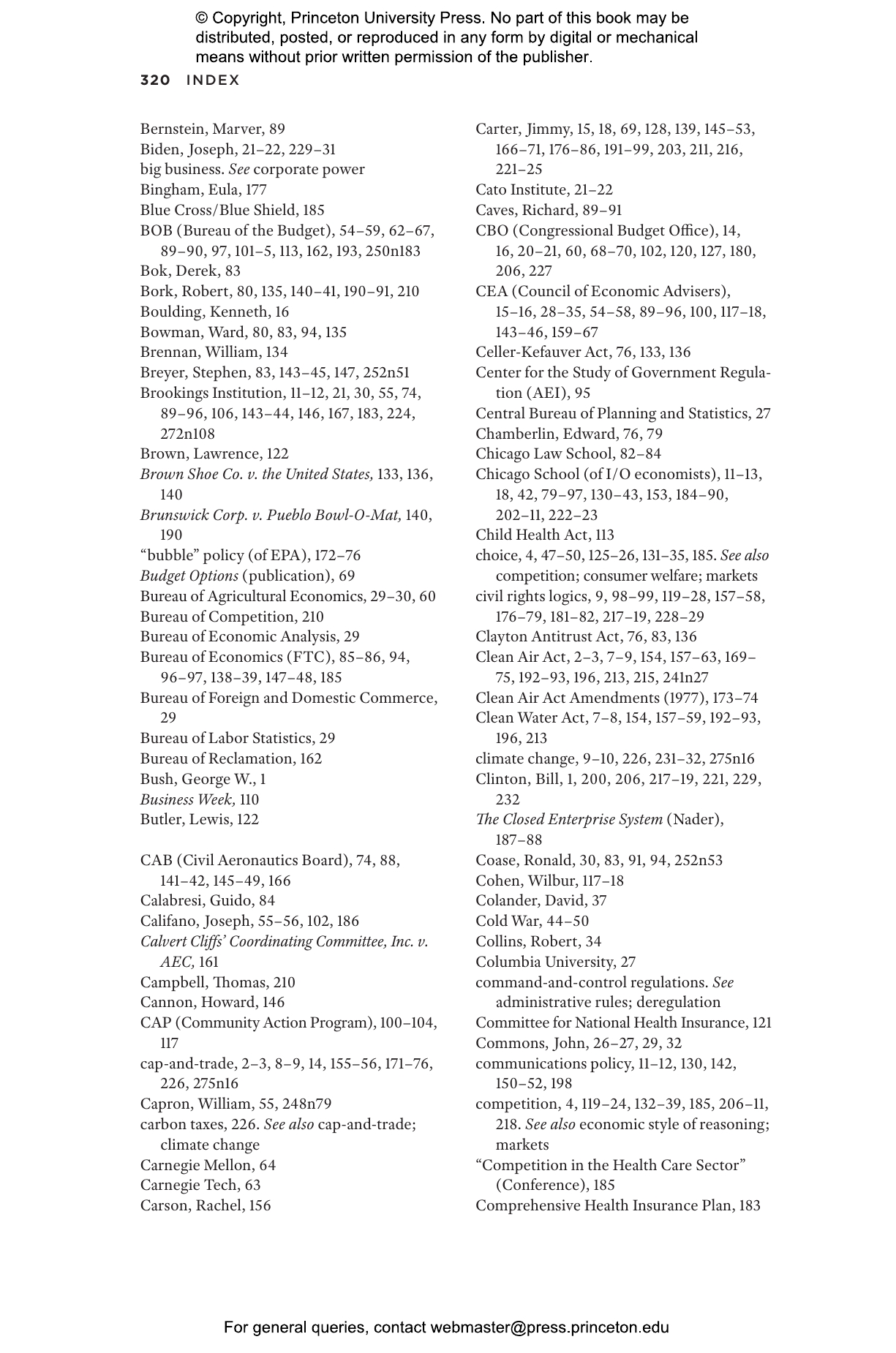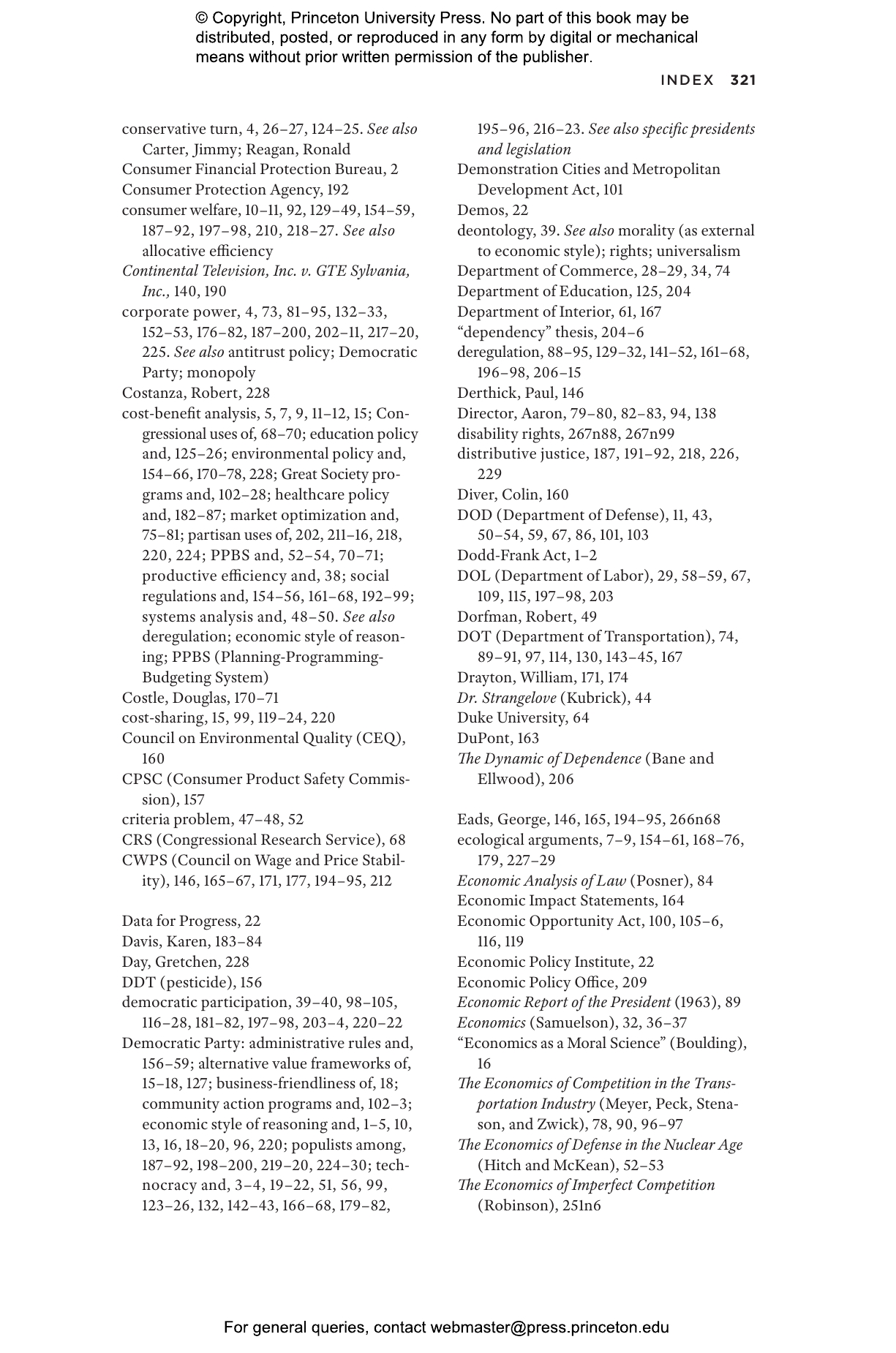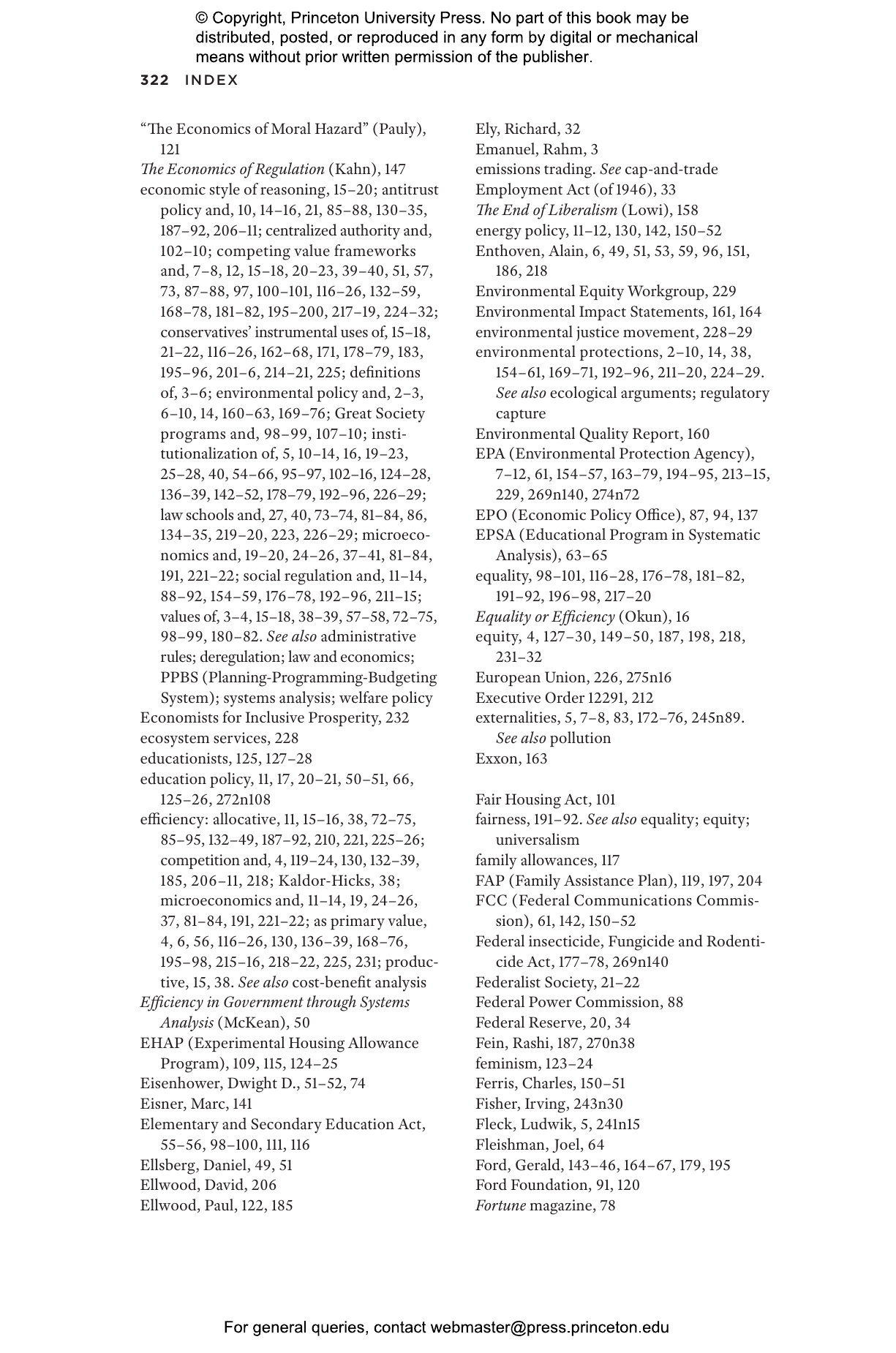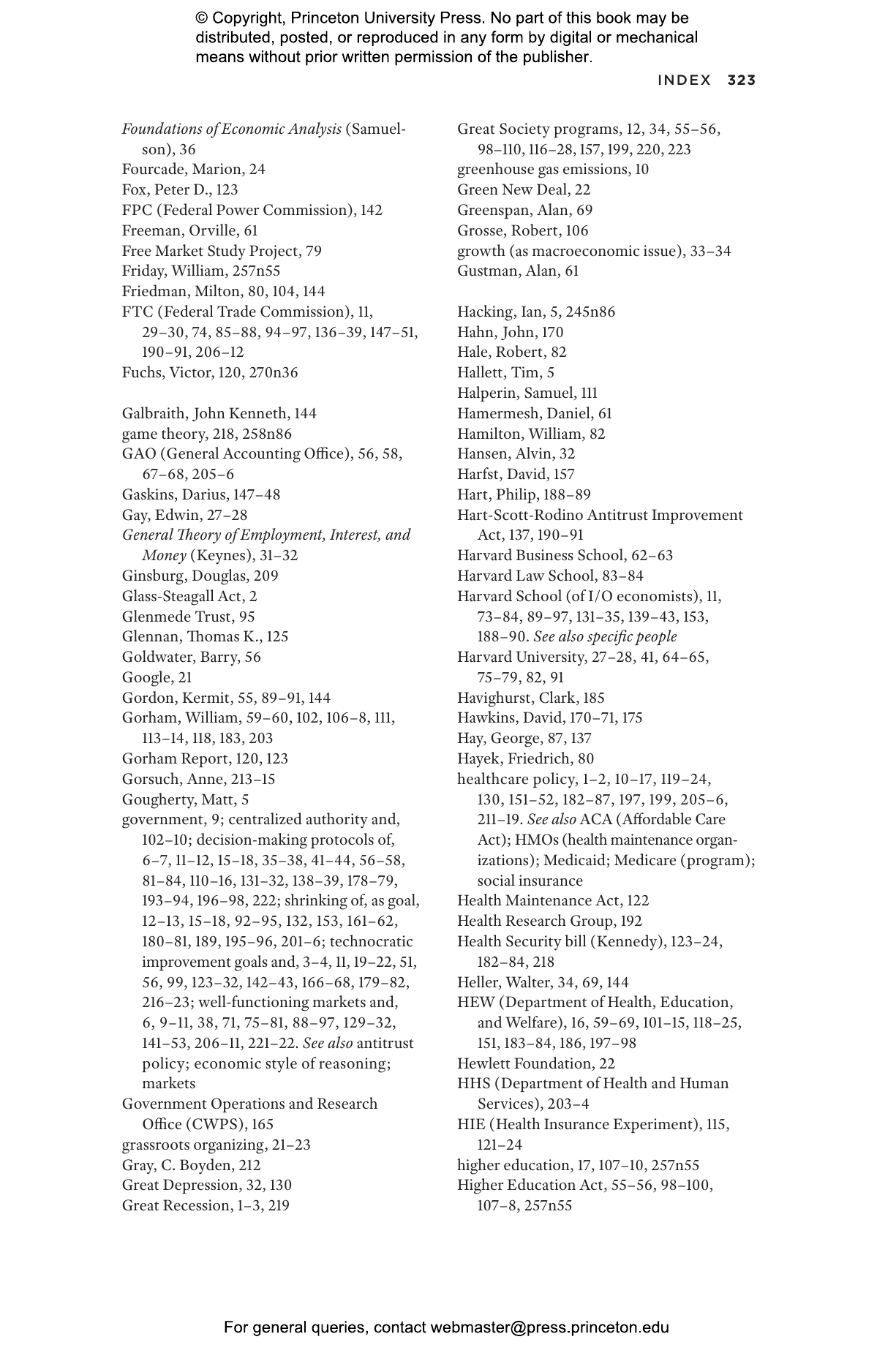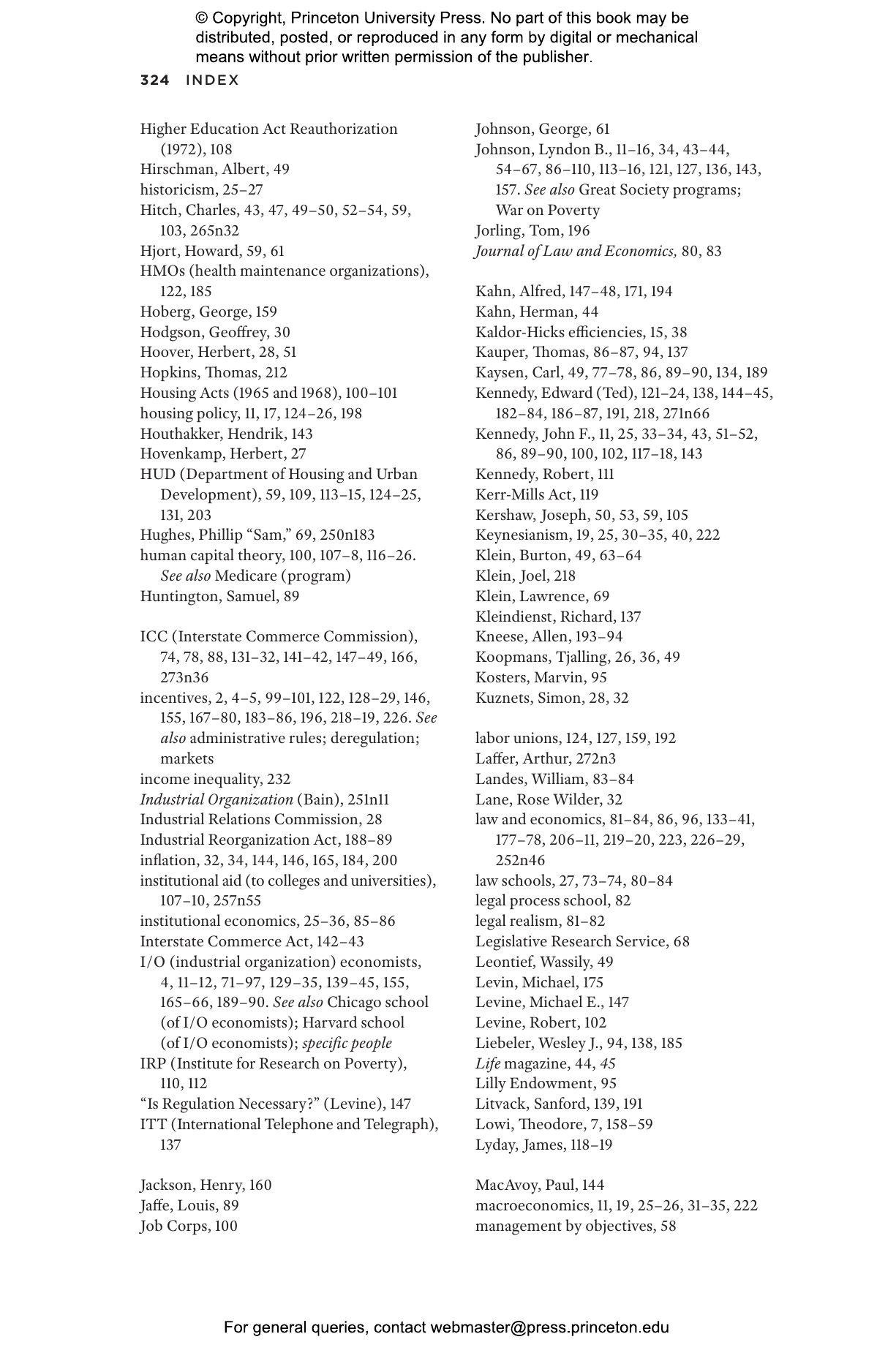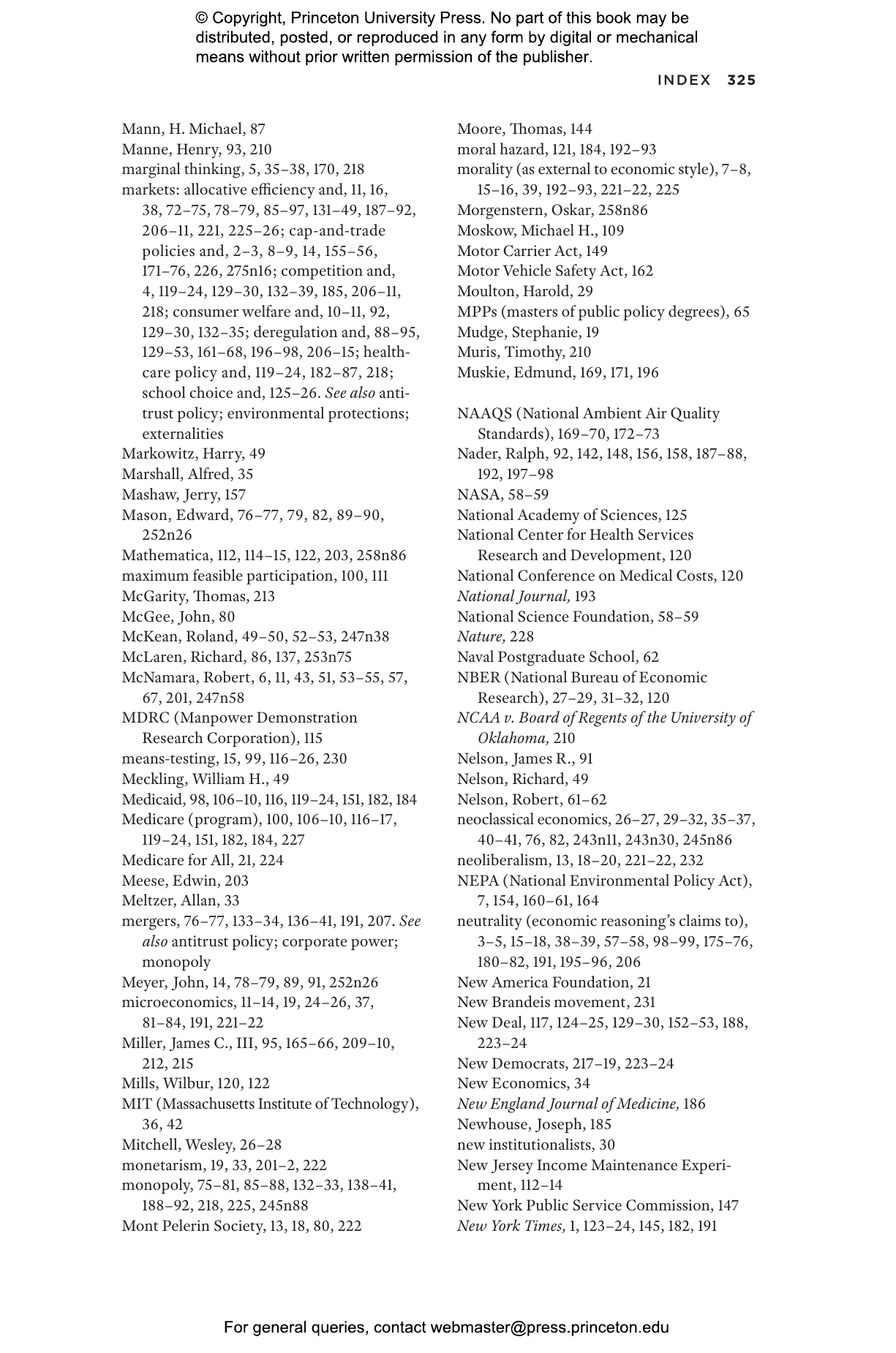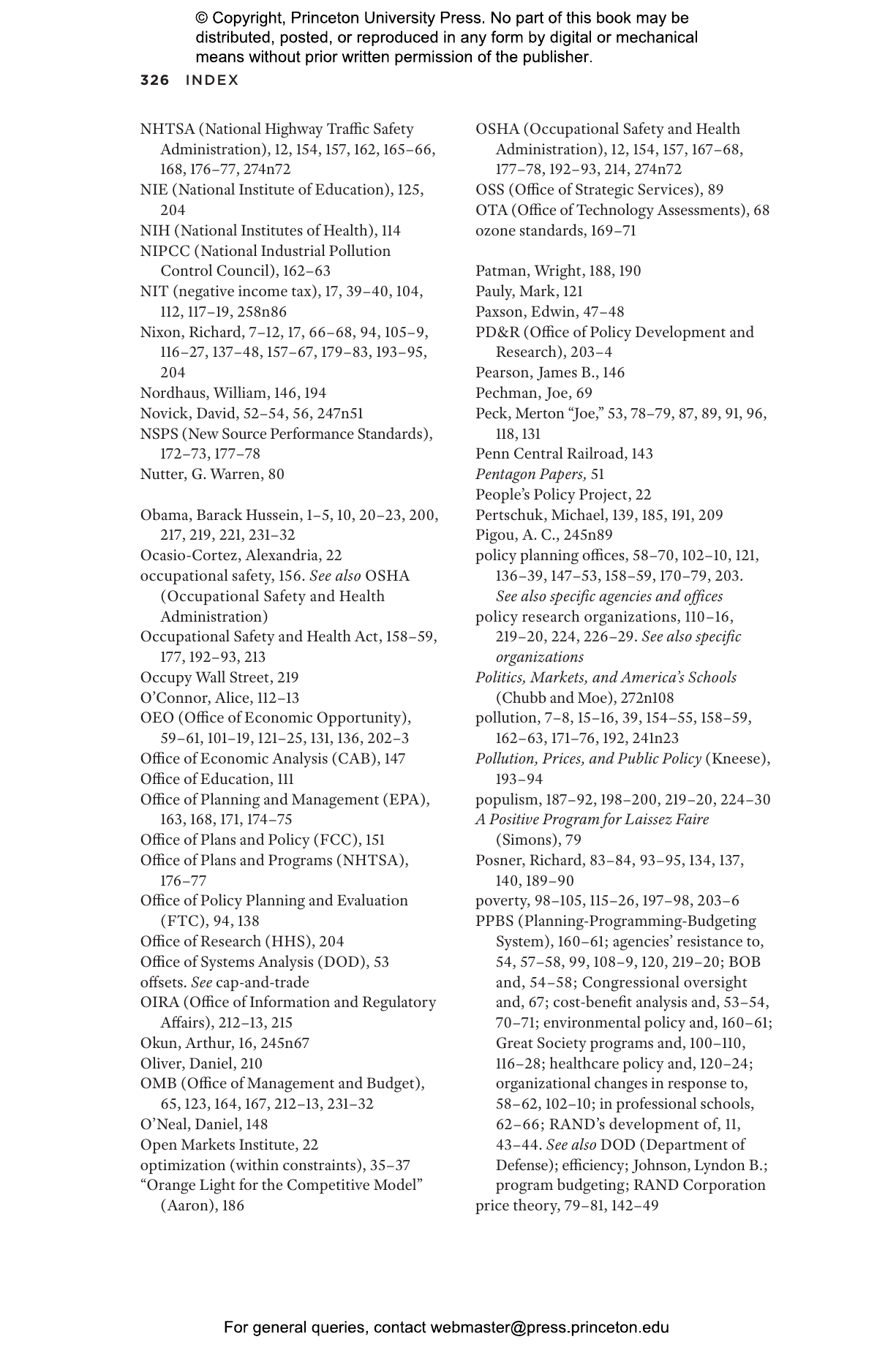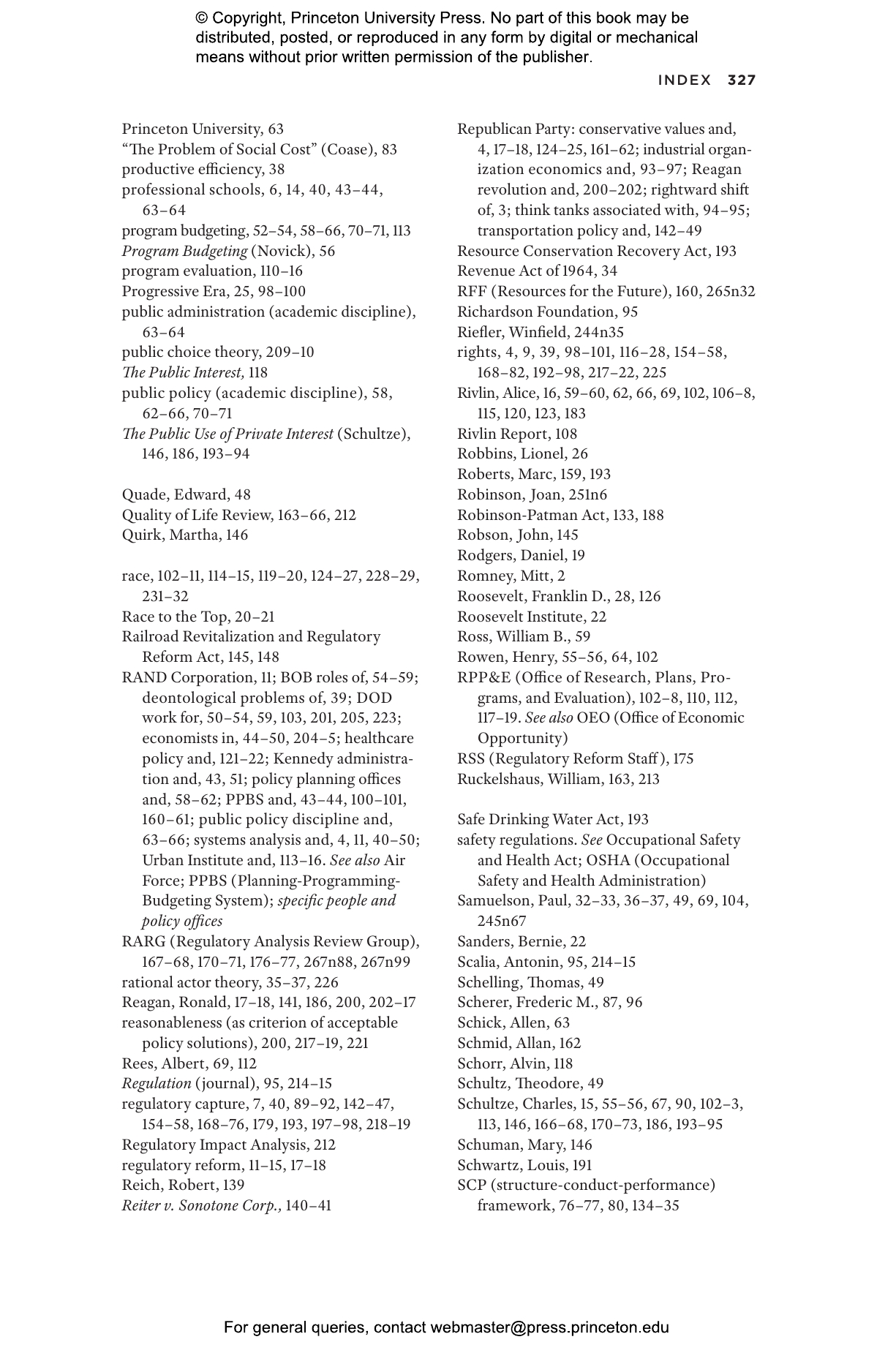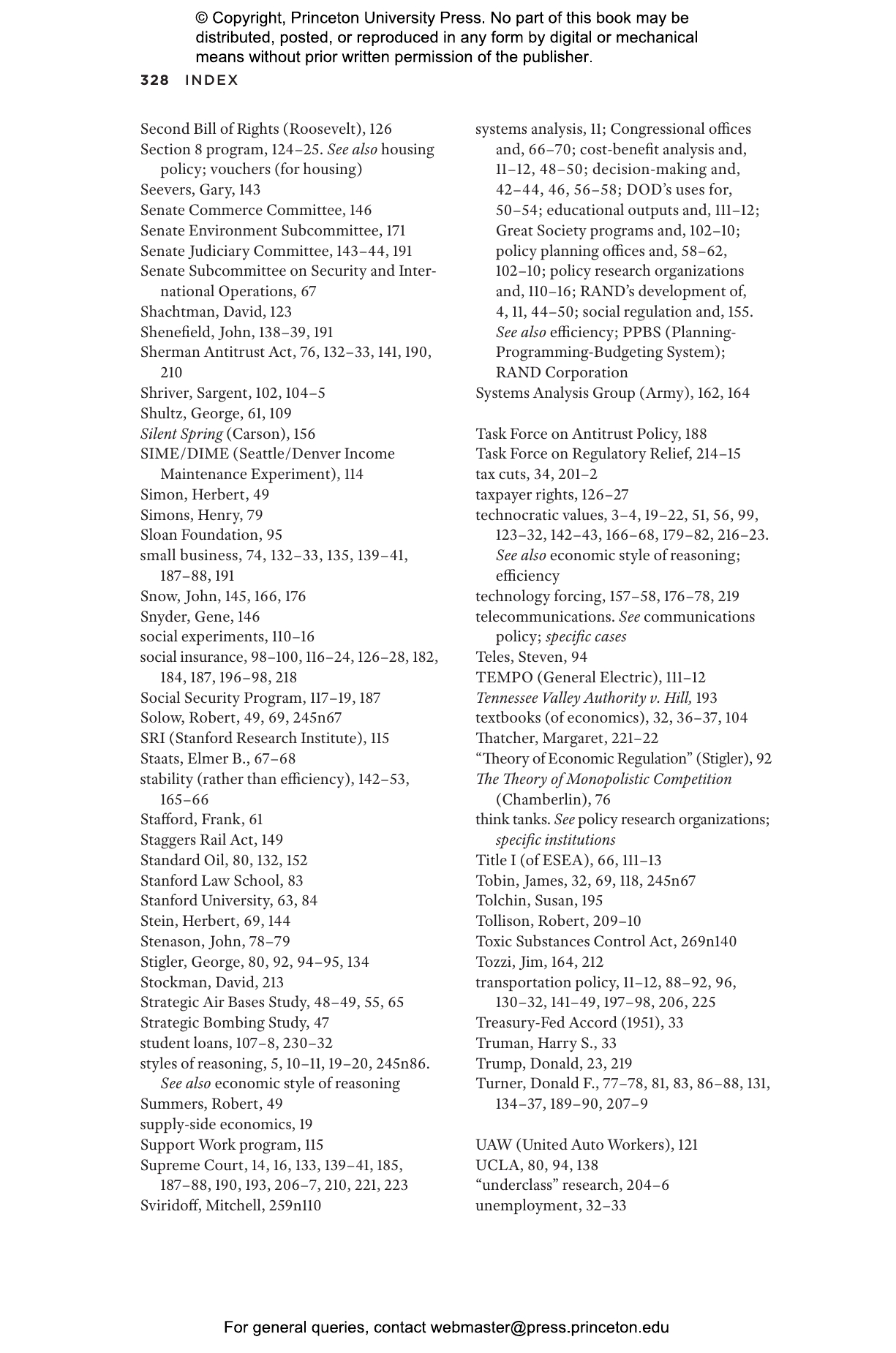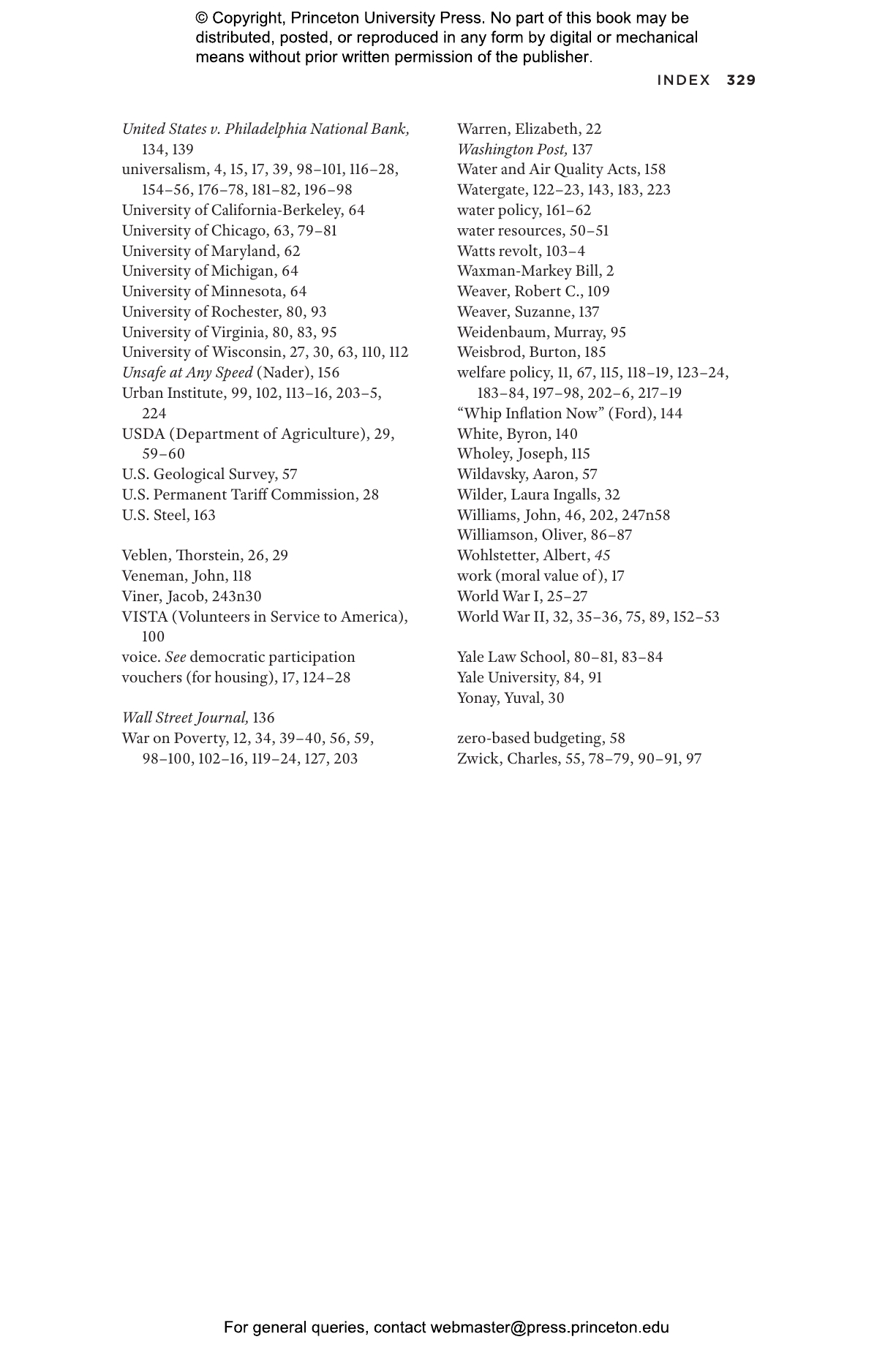For decades, Democratic politicians have frustrated progressives by tinkering around the margins of policy while shying away from truly ambitious change. What happened to bold political vision on the left, and what shrunk the very horizons of possibility? In Thinking like an Economist, Elizabeth Popp Berman tells the story of how a distinctive way of thinkingâan âeconomic style of reasoningââbecame dominant in Washington between the 1960s and the 1980s and how it continues to dramatically narrow debates over public policy today.
Introduced by liberal technocrats who hoped to improve government, this way of thinking was grounded in economics but also transformed law and policy. At its core was an economic understanding of efficiency, and its advocates often found themselves allied with Republicans and in conflict with liberal Democrats who argued for rights, equality, and limits on corporate power. By the Carter administration, economic reasoning had spread throughout government policy and laws affecting poverty, healthcare, antitrust, transportation, and the environment. Fearing waste and overspending, liberals reined in their ambitions for decades to come, even as Reagan and his Republican successors argued for economic efficiency only when it helped their own goals.
A compelling account that illuminates what brought American politics to its current state, Thinking like an Economist also offers critical lessons for the future. With the political left resurgent today, Democrats seem poised to break with the pastâbut doing so will require abandoning the shibboleth of economic efficiency and successfully advocating new ways of thinking about policy.
Awards and Recognition
- A Choice Outstanding Academic Title of the Year
"Indispensable. Deeply researched and powerfully argued, it is easily one of the most important studies of American governance in many years."âSimon Torracinta, Boston Review
"Berman is well worth reading for deeply researched detail on how market-fundamentalist economics colonized the administrative state and thus weakened progressivism."âRobert Kuttner, American Prospect
"The historical account in Thinking like an Economist, which makes up the bulk of the book, is an original, insightful, and persuasive story. . . . Berman provides a fresh perspective emphasizing a wide variety of microeconomic topics, including antitrust law, antipoverty policy, health care, and the environment."âJason Furman, Foreign Affairs
"Berman is at her best as an archeologist of ideas, digging through archives to excavate the origins of the economic style of reasoning and its takeover of federal policymaking."âIdrees Kahloon, The New Yorker
"As a non-economist who writes about economics, I felt seen by Berman."âPeter Coy, New York Times
"The import of her book is clear to me. Itâs OK to believe thereâs value beyond markets and competition, and while efficiency can be a useful goal in many cases, sometimes we should embrace deeper values around fairness, and dare I say it, right and wrong."âJohn Warner, Chicago Tribune
"This outstanding work is highly recommended. . . . Essential."âChoice
"It turns out this kind of thinkingâwhat Berman calls âthe economic style of reasoning'âhas taken over not just environmental policy but the entire US policy bureaucracy, to dismal results. Itâs as much something Democrats have done to themselves as anything forced by the right. One always enjoys having oneâs priors validated by scholars of much greater distinction than oneself, so I was delighted to read the book."âDavid Roberts, Volts
"A captivating and detailed historical account of the rise of economics and economists’ influence within the US Administration during the 1960s and 1970s."âCléo Chassonnery-Zaïgouche and Aurélien Goutsmedt, Oeconomia
"An engaging account of the role that economists and government advisors with an economics training played in shaping public policy in the US during the post-war period. . . .Very well written and extremely erudite."âGiulio Zanella, Oeconomia
âIn what is sure to become a classic, Berman unravels how economists, and their way of thinking, came to exert such a powerful influence on the institutions that shape U.S. policymaking. Her sharp analysis shows how the resulting fixation on efficiency, a single-minded focus on market-oriented solutions, and the abandonment of political claims based on universalism, rights, and equality has undermined our ability to solve major social problems.ââPamela Herd, Georgetown University
âThis book deserves to make waves. It is original, finely written, provocative, and right. Fragments of this story have been told beforeâbut Berman has done the hard work of crafting a compelling new narrative about where some of the most crucial aspects of our modern world have come from. Thinking like an Economist deserves a wide readership, not just among sociologists, but political scientists, economists, and everyone interested in how the economic approach came to dominate American policy debate.ââHenry Farrell, Johns Hopkins University
âIf you want to understand modern policy debates in economics, you need to go beyond the shopworn neoliberalism narrative and explore what economists really are thinking. Elizabeth Popp Bermanâs book provides a wonderful guide for doing just that.ââDavid Colander, Middlebury College
âThe compass by which a nation sets its public policy tells us a good deal about its values and priorities. In this remarkable book, Elizabeth Popp Berman tells the story of how, for the United States, efficiency became the North Star with the economist as navigator. Less a partisan story than one of a shift in the culture of governance, this book sheds important new light on how economic thinking has infused both our policy priorities and the mechanisms for attempting to implement them.ââSteven G. Medema, Duke University
